Welcome to Good Market Info!
Click the logo to return to the Good Market app
Welcome to Good Market Info! Click the logo to return to the Good Market global app.

Welcome to the 40 social enterprises, cooperatives, responsible businesses, civic organizations, and networks that became Good Market approved in July 2022! This month’s roundup includes new community members from Australia, Japan, Taiwan, Lao, Thailand, Sri Lanka, Nepal, India, Eswatini, Tanzania, Ghana, Nigeria, Germany, Denmark, the United Kingdom, the United States, and Canada. More than 2,314 enterprises across 85 countries are now part of the Good Market commons.
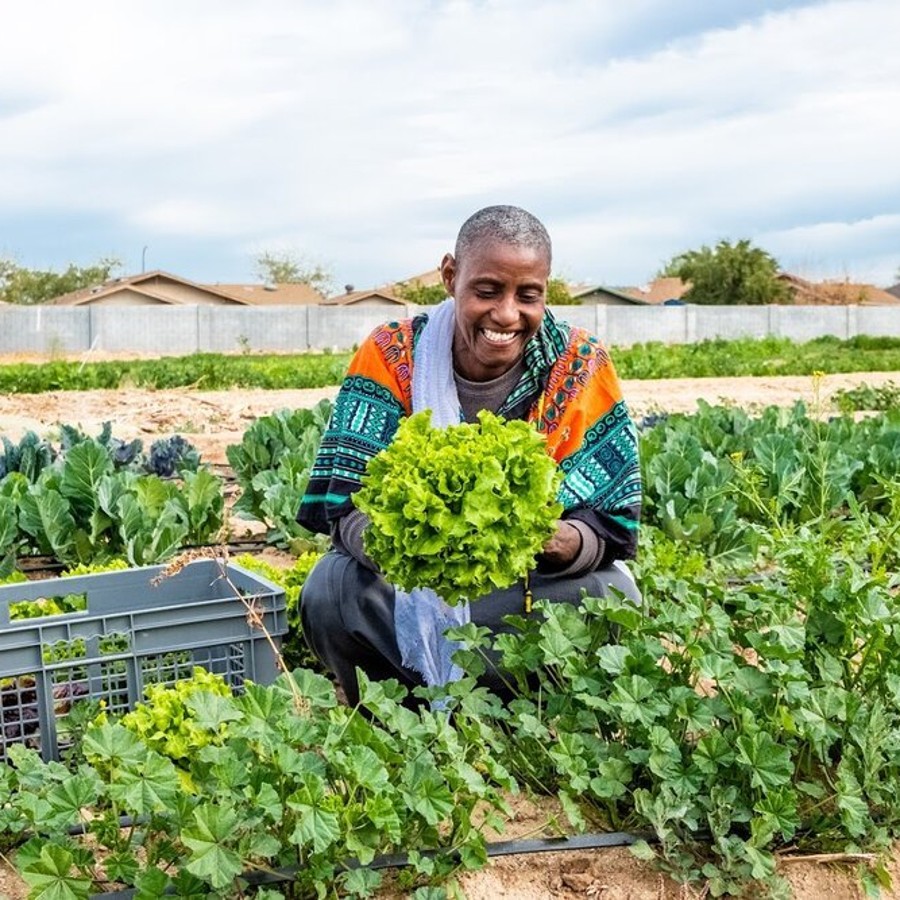
Phoenix, Arizona, United States
Project Roots nourishes and educates communities in need by promoting a healthier, natural, and more sustainable way of urban living. They operate community gardens in Phoenix, Arizona that provide growing space for families, educate youth through free classes and school programs, and feed people experiencing homelessness and food insecurity. Project Roots offers seasonal community-supported agriculture (CSA) box subscriptions, sells at farmers’ markets throughout the valley, and is Supplemental Nutrition Assistance Program (SNAP) eligible. They also supply garden boxes and organize educational programs to encourage people to grow their own food. The Project Roots community wellness collective hosts weekly yoga sessions at their Space of Opportunity site. Project Roots is registered as a 501(c)3 not-for-profit organization. They are part of the Arizona Coalition for Change and the Phoenix Food Co-op.
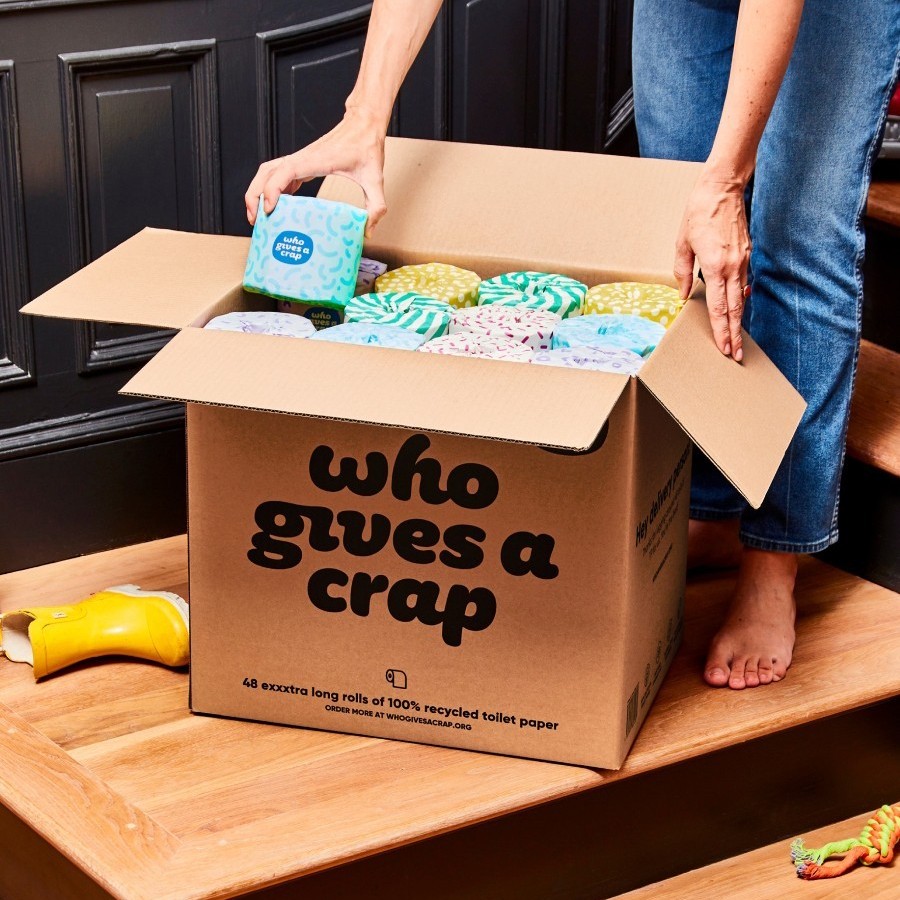
Melbourne, Australia and Los Angeles, United States
Who Gives A Crap supplies environmentally responsible toilet paper, tissues, and kitchen towels and donates 50 percent of their profits to charities that bring toilets, clean water, and sanitation services to the people who need them. Products are price competitive, plastic free, made from recycled paper, bamboo, or bagasse with no dyes, inks, or scents, and are available retail and wholesale in Australia, the United States, the United Kingdom, and the European Union. Shipping is carbon neutral. Who Gives A Crap supports innovative, high impact water and sanitation partners including WaterAid, Sanergy, Lwala Community Alliance, Shining Hope For Communities, iDE, Splash, WSUP, and Water For People. They use their platform to raise awareness about environmentally responsible choices, water, and sanitation. Who Gives A Crap is a certified B Corporation.
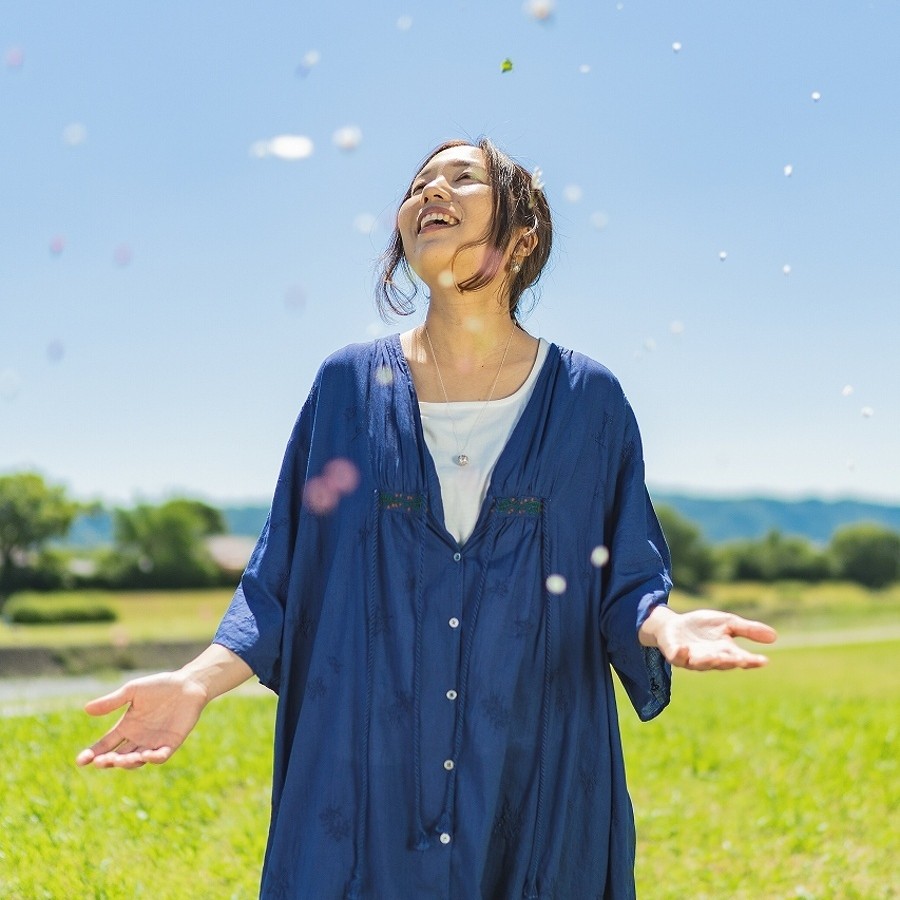
Kyoto, Japan
Sisam, which means “good neighbor” in the Ainu language, started in 1999 with a small fair trade shop in Hyakumanben, Kyoto and has expanded to fair trade stores throughout Kyoto, Kobe, Osaka, and Tokyo, 300 wholesale partners across Japan, and online sales. They aim to build a compassionate society and address environmental problems and social issues such as poverty and child labor by promoting products and services that benefit producers, sellers, buyers, society, and the global environment. Sisam has an internal design team that works with fair trade producer partners around the world to develop unique products for the Japanese market. They specialize in fair trade organic cotton clothing, jewelry, accessories, food, and housewares. Sisam uses their platform to raise awareness about fair trade and the idea that every purchase is a vote for the kind of society you want to live in. Sisam is a guaranteed member of the World Fair Trade Organization (WFTO) and is certified as a zero waste apparel store by Zero Waste Japan and a 1,000 year business by SILK.
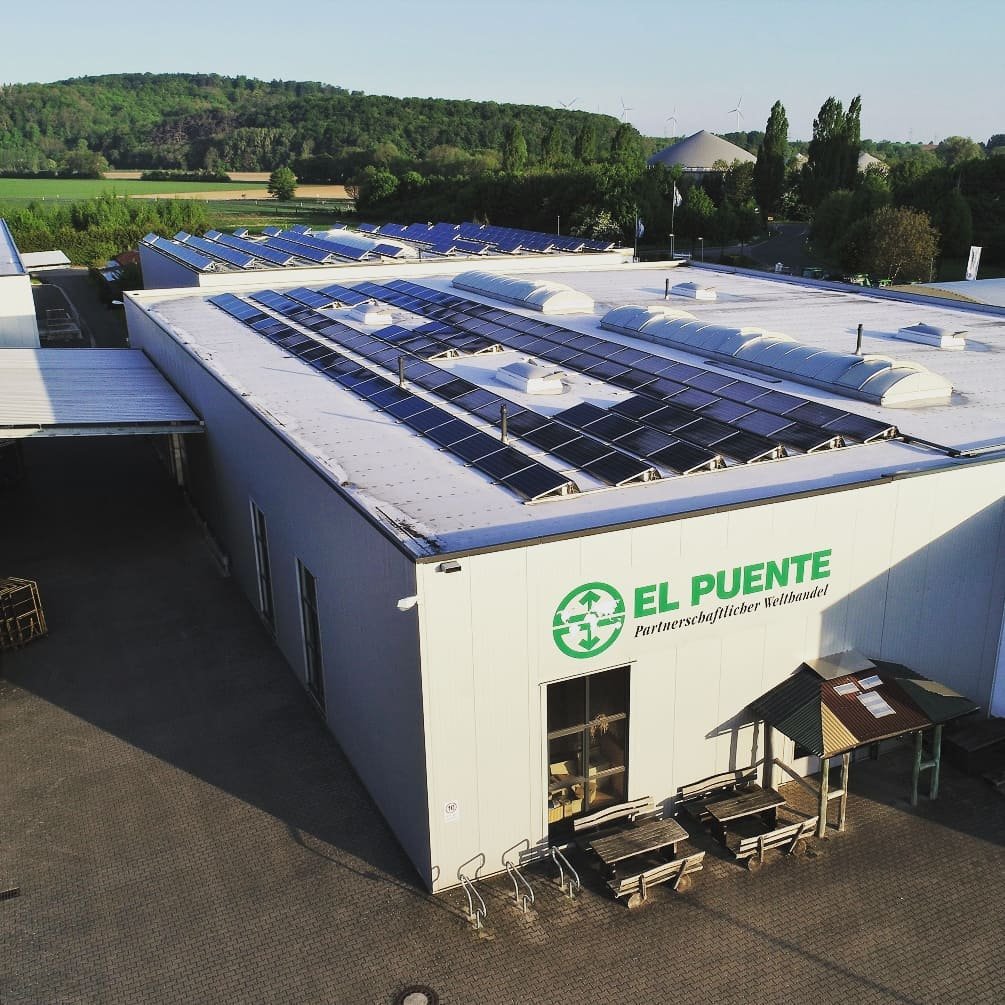
Nordstemmen, Germany
El Puente has been importing and distributing fair trade products since 1972 and is a German pioneer of the global fair trade movement. They source food, drinks, clothing, accessories, toys, housewares, and wellness products from more than 140 fair trade partners around the world, supply a network of world shops and other retail partners, and sell directly online. El Puente is committed to trading partnerships based on dialog, transparency, and respect that enable producers to improve their working conditions and earn a living wage through fair prices. They prioritize organic and sustainably sourced materials and ship plastic free. Their Nordstemmen facilities have photovoltaic solar electricity, rainwater harvesting, and solar thermal systems. El Puente promotes fair trade and climate justice through events, workshops, educational materials, online resources, and advocacy campaigns. They are governed by five stakeholder groups, including trading partners, employees, and world shops, and operate as a not-for-profit social enterprise. El Puente is a guaranteed member of the World Fair Trade Organization (WFTO) and a member of Forum Fairer Handel, Weltladen-Dachverband, ARGE Weltläden, Klima Kollektive, and Gemeinwohl Ökonomie.
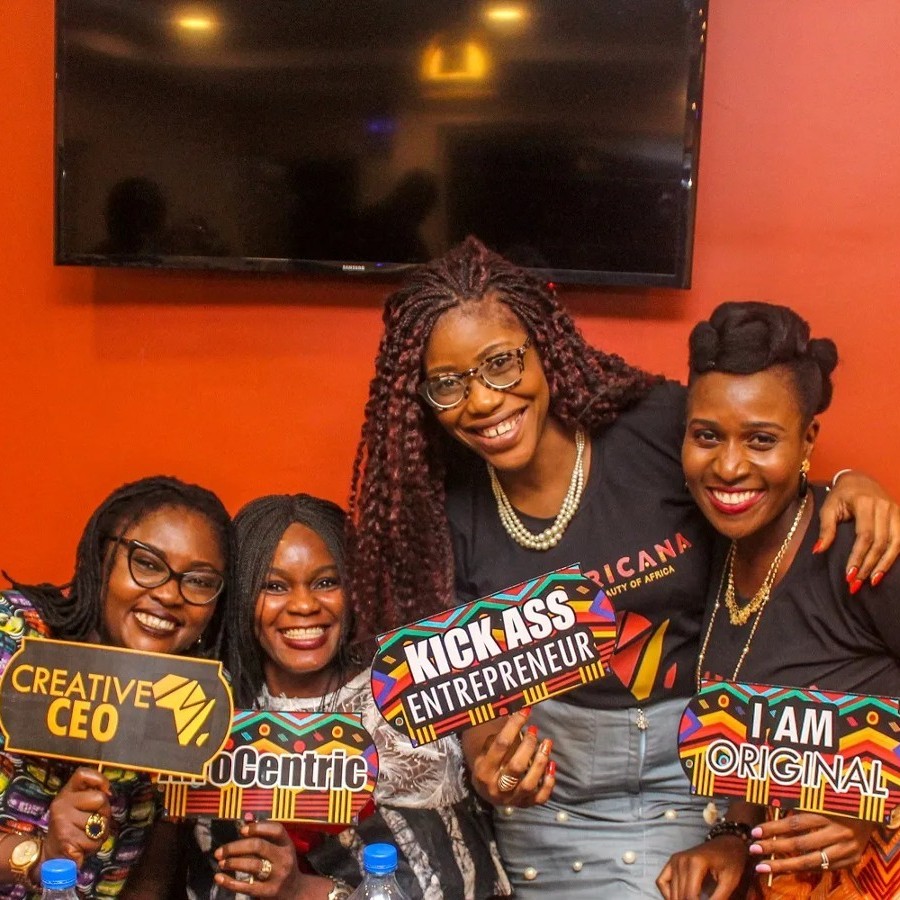
Lagos, Nigeria
Bellafricana is a tech-enabled community that includes thousands of African creative entrepreneurs focusing on fashion, art, beauty, home and living, and food. They raise the visibility of members through an online directory, media partners, social platforms, and events, increase sales through an online marketplace, exhibitions, and connections with buyers, and build capacity through online tools, resources, courses, master classes, and a network of experts and mentors. Bellafricana also organizes the annual ACE Awards to celebrate creativity and innovation in Africa. By helping start, grow, and scale sustainable businesses, they benefit creative entrepreneurs, their families, their teams, and their communities. Bellafricana contributes to Health Emergency Initiative (HEI) to cover emergency medical expenses for people in need.
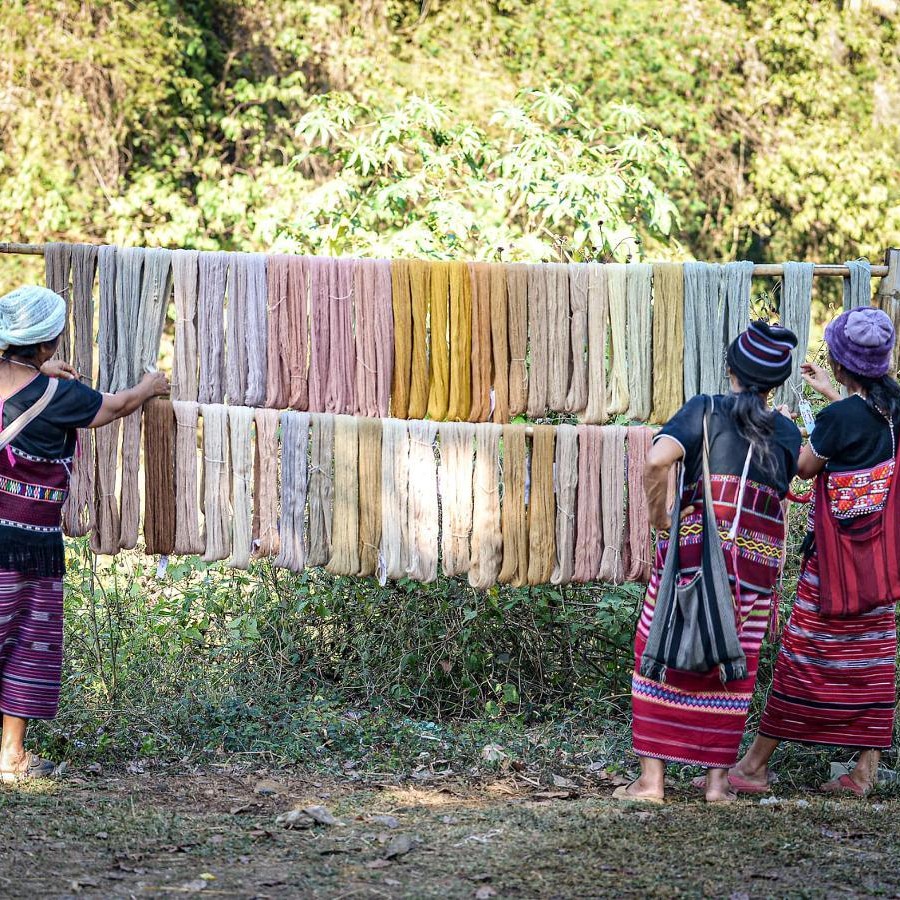
Chiang Mai, Thailand
Women’s Education for Advancement and Empowerment (WEAVE) was founded in 1990 to empower marginalized indigenous women, refugees, and their children from Myanmar and northern Thailand. They work with women artisans from remote hill tribe villages, Karen and Karenni refugee camps on the Thai-Myanmar border, and the surrounding host communities to address poverty and food insecurity and increase social cohesion and collaboration through handwoven fair trade housewares and accessories. Products are available online and through wholesale partners. WEAVE is committed to gender equality, fair wages, safe working conditions, preserving traditional skills and techniques, and living in harmony with nature. Their natural dye range is colored with sustainably harvested local bark, fruits, and leaves. Profits are used to support education, environmental initiatives, and supplementary food, shelter, and essential materials for people in need. WEAVE is a guaranteed member of the World Fair Trade Organization (WFTO) and part of WFTO Asia, Institute for Social Entrepreneurship in Asia (ISEA), Fair Trade Alliance Thailand, MADE51, and the Committee for Coordination of Services to Displaced Persons in Thailand (CCSDPT).
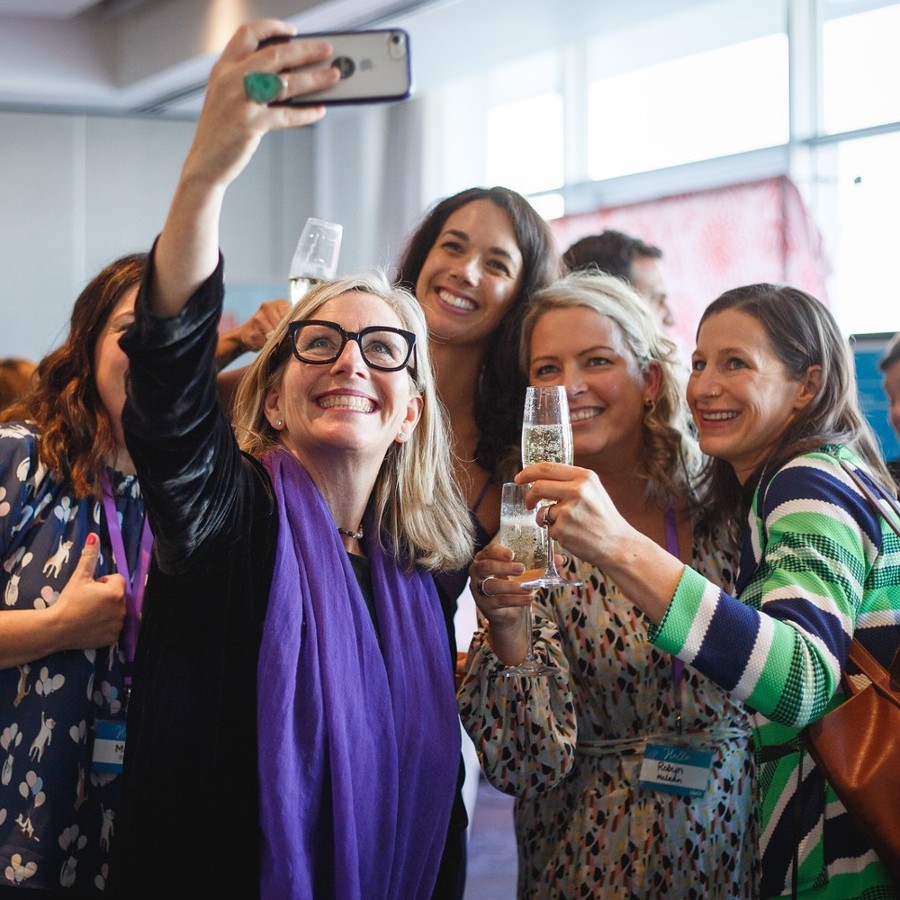
Toronto, Ontario, Canada
Coralus (formerly SheEO) is a uniquely inclusive community that is cocreating new economic and social models by practicing radical generosity and distributing crowdsourced support. Members offer and access resources at their own pace, creating a self-regenerating pay-it-forward pool of skills, connections, funds, and support. Coralus has used crowdsourced decision making to circulate millions of dollars of community capital to women and nonbinary-led ventures that are advancing “The World’s To-Do List” as defined by the UN Sustainable Development Goals (SDGs). Nearly half of the supported founders are from historically excluded racial and ethnic groups. The payback rate on their unsecured, zero percent interest loans is 95 percent. Coralus is registered as a not-for-profit organization in Canada and has affiliate networks in the United States, Australia, New Zealand, and the United Kingdom.
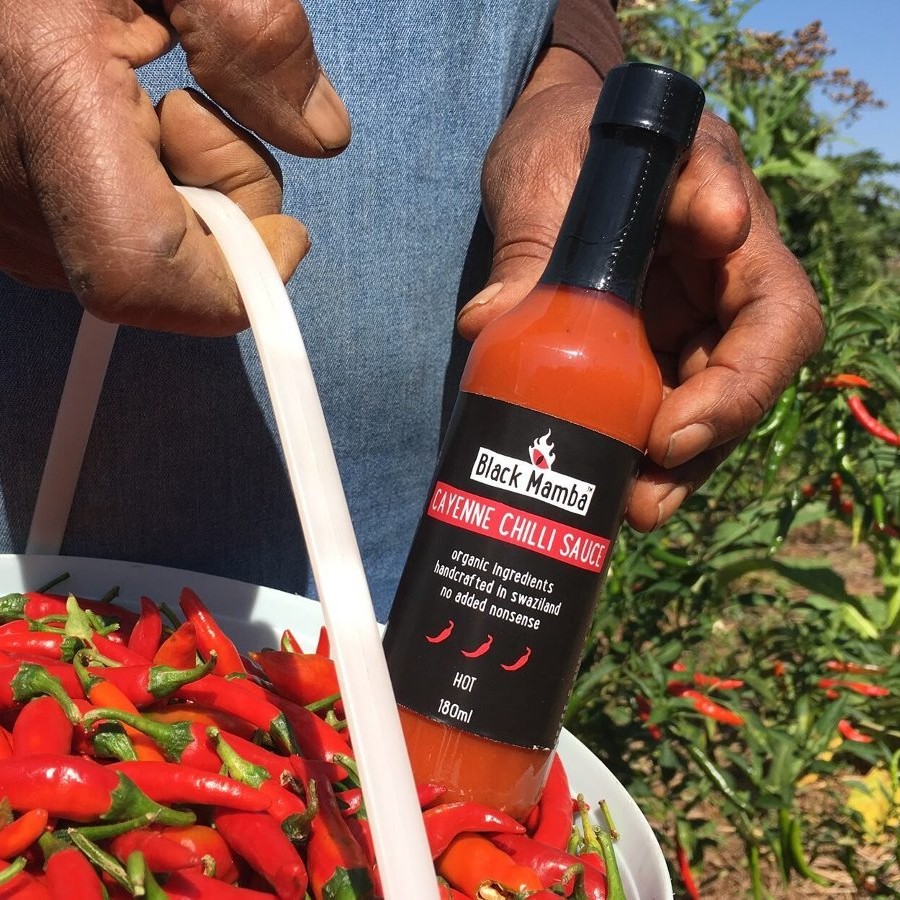
Matsapha, Eswatini
Black Mamba produces natural chili sauces, pestos, chutneys, and jams in Eswatini that are “good for you, good for the earth, and good for rural communities.” They partner with Guba, a local permaculture organization, to train Swazi smallholders in regenerative organic agriculture techniques that build soil and increase biodiversity. Black Mamba purchases chilies and other fresh produce from these smallholder farmers, most of whom are women, and pays consistent fair trade prices. They also organize financial literacy training, gender-based violence seminars, breast cancer and cervical cancer checks, and other wellness programs for farmers and employees. Black Mamba prioritizes packaging that is either easily recyclable or biodegradable and reuses, composts, or recycles the majority of their waste. They donate to the Eswatini Antivenom Foundation and the Black Mamba Anti-Poaching Unit in South Africa. Black Mamba is part of Swaziland Fair Trade (SWIFT).
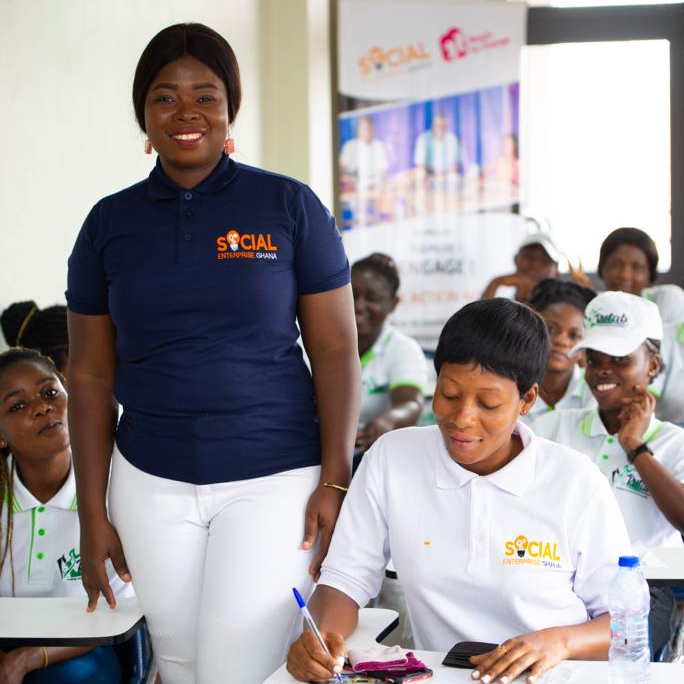
Accra, Ghana
Social Enterprise Ghana is a network of high-impact social entrepreneurs working together to strengthen the social enterprise ecosystem in Ghana. Members are included in a social enterprise directory, participate in action groups, and have access to events, learning resources, secretariat services, and investment opportunities. Action groups focus on four key areas: learning and innovation, funding and investment, policy and advocacy, and research. Social Enterprise Ghana provides advisory services to help social enterprises become investment ready and is developing the Ghana SE Fund to provide loans at concessional interest rates. They are registered as a not-for-profit company limited by guarantee.
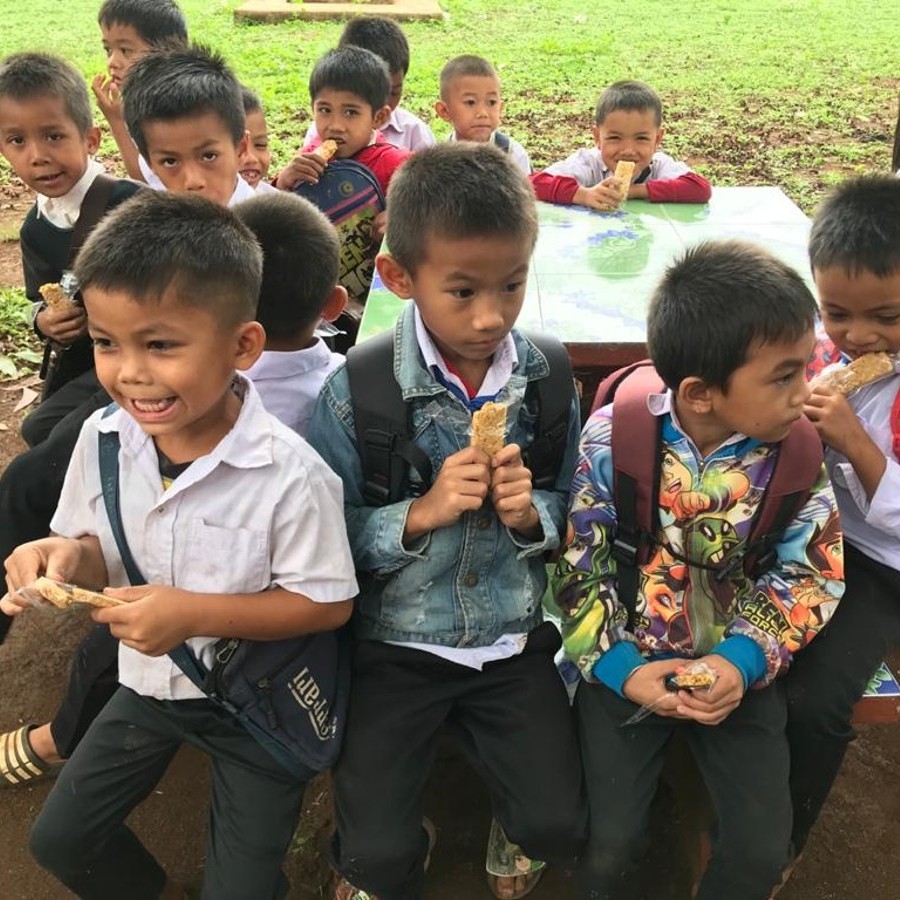
Onalaska, Wisconsin, United States and Vientiane, Lao
Omegoodness, which is the trade name of Maï Savanh Lao in the United States, supplies fair trade superfoods that support rural farming communities in Laos. They specialize in roasted snacks, cold-pressed oil, vegan protein powder, protein flakes, superseed butter, and granola made from sacha inchi, an edible seed that is rich in omega-3 and contains all essential amino acids that cannot be synthesized by the body. They also offer solar dried bananas and mack khen, a lemony wild harvested spice. Maï Savanh Lao works with a network of more than 2,000 farming families in low income rural areas to create sustainable income, promote environmentally responsible farming practices, and support long-term community development. They use a portion of their sales to run Snacks4Smiles, a school breakfast program that provides protein-rich snack bars made with sacha inchi to children before school in order to reduce malnutrition and improve learning. Maï Savanh Lao is a guaranteed member of the World Fair Trade Organization (WFTO).
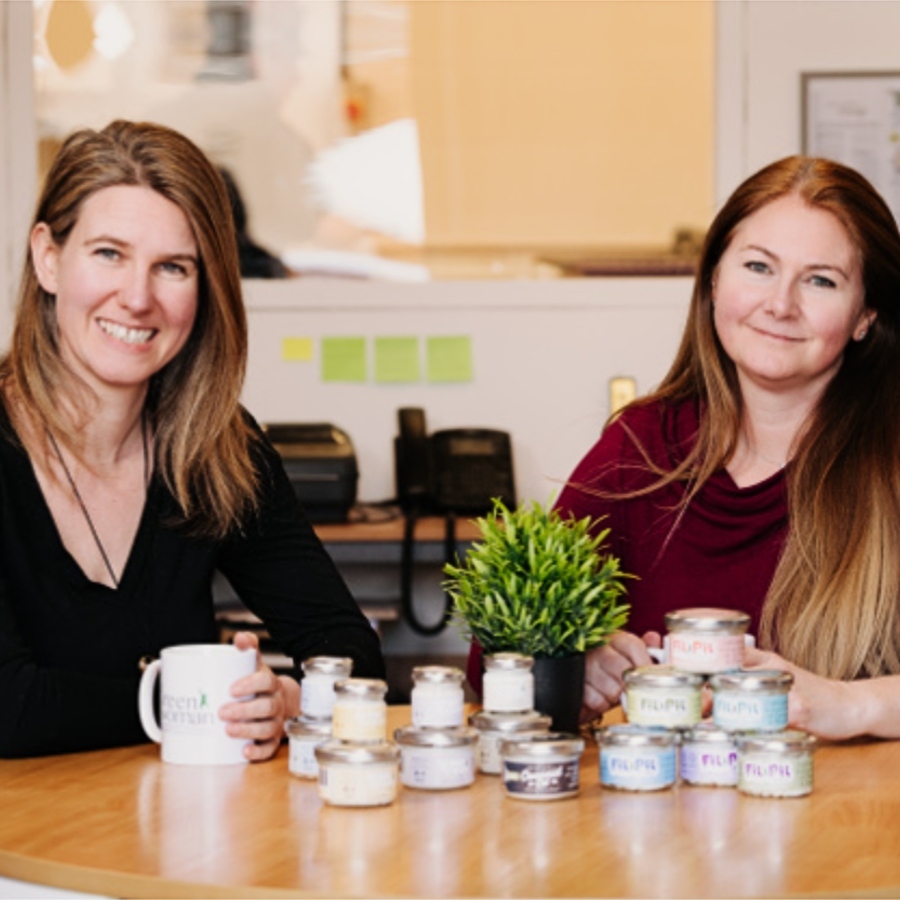
Ludlow, England, United Kingdom
The Green Woman was founded by two sisters to provide an ethical alternative to conventional toothpaste, deodorant, suncream, and skincare. Their products are organic certified and handmade in the United Kingdom from natural, vegan ingredients with no bulking agents. Packaging is plastic free and recyclable and glass jars are collected for sterilization and reuse. Ten percent of profits are donated to environmental causes including Break Cancer UK for the prevention of cancer from environmental causes, Reclaim the Power to stop fracking, and School Strikes and Extinction Rebellion for climate action. The Green Woman has Soil Association COSMOS Organic certification and is part of Permaculture Association and Positive.
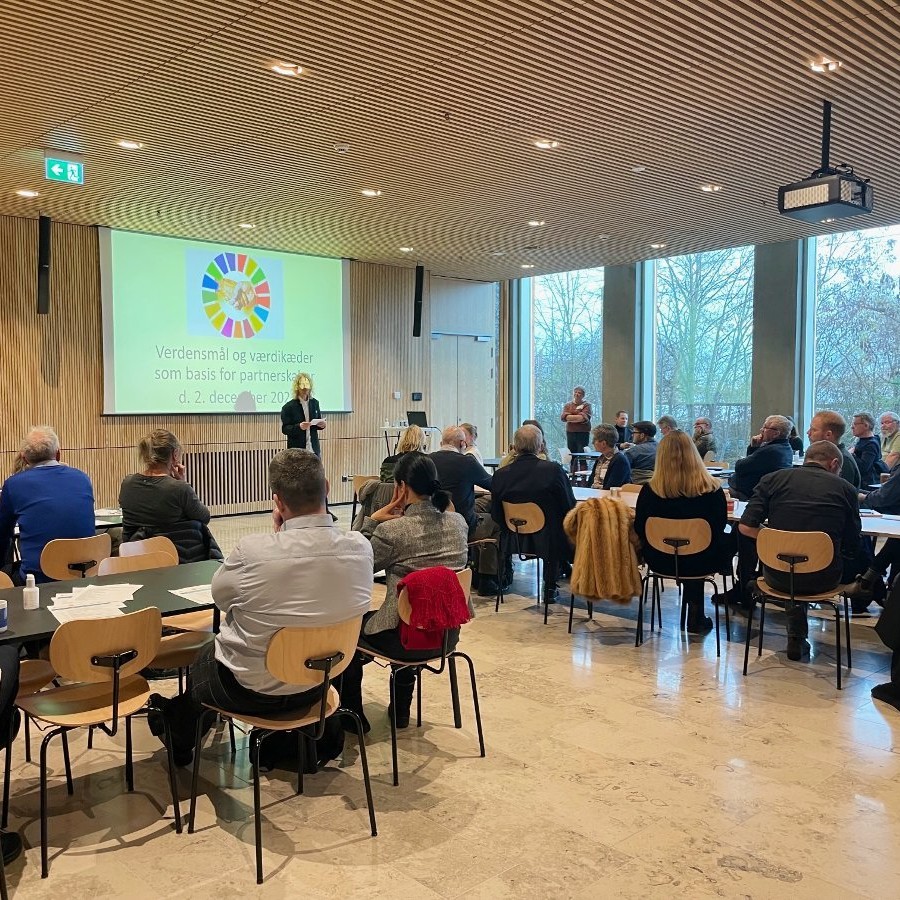
Aarhus, Denmark
Sociale Entreprenører i Danmark (SED) is a national association in Denmark for everyone interested in social innovation, social enterprise, and a sustainable future. They function as a network and forum where social entrepreneurs can find information and support, exchange experiences and ideas, and inspire each other. SED maintains a knowledge portal and directory, organizes meetings, workshops, study tours, conferences, and other events, offers consulting services, participates in national and international projects, and works at a strategic level to develop new business models. They are part of Euclid Network, Social Enterprise Support Network of the Baltic Sea Region, and Globalt Fokus.
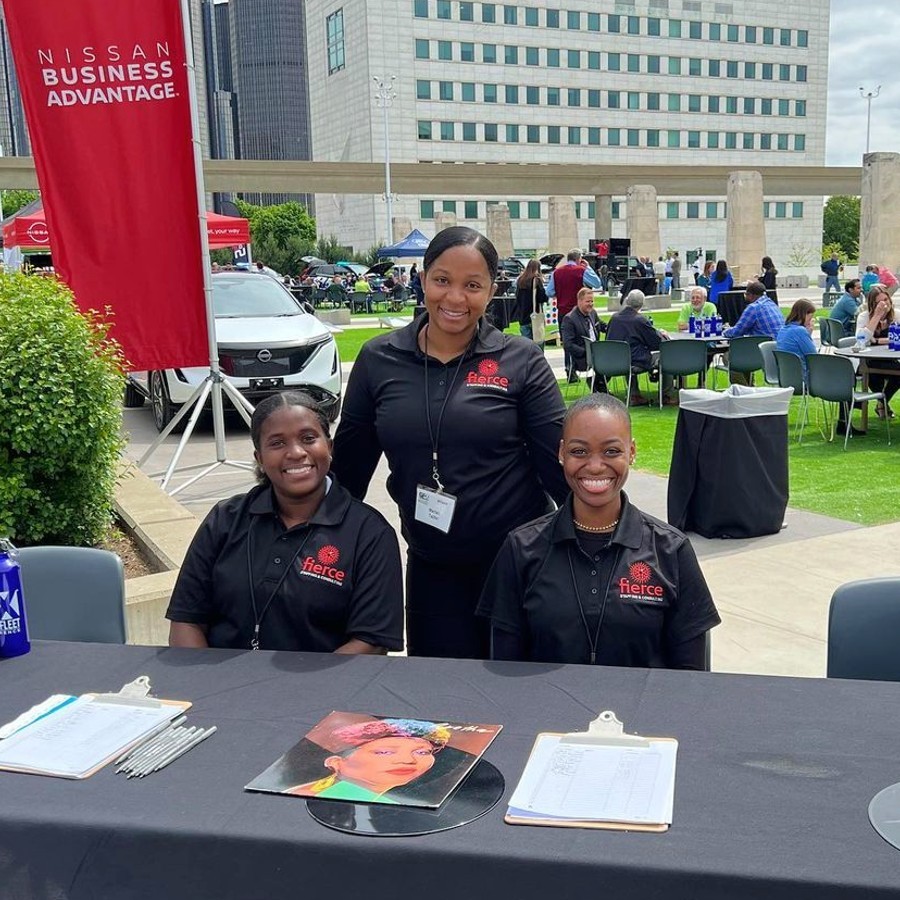
Detroit, Michigan, United States
Fierce Staffing offers talent solutions and consulting services while developing a diverse and inclusive workforce. They specialize in hospitality, event planning and execution, brand ambassadors, volunteer management, temp-to-hire, permanent placements, human resources, payroll, employee engagement, and Diversity, Equity and Inclusion (DEI). Fierce Staffing recruits individuals with barriers to employment. They work with community partners to provide hospitality and professional development training and customized support like child care, computer training, and mental health resources. After training, participants are eligible for temporary positions with Fierce Staffing clients and have access to continuous improvement programs, industry recognized certifications, and permanent placement opportunities. Fierce Staffing is a women-owned, minority-owned business certified by the Women’s Business Enterprise National Council (WBENC).
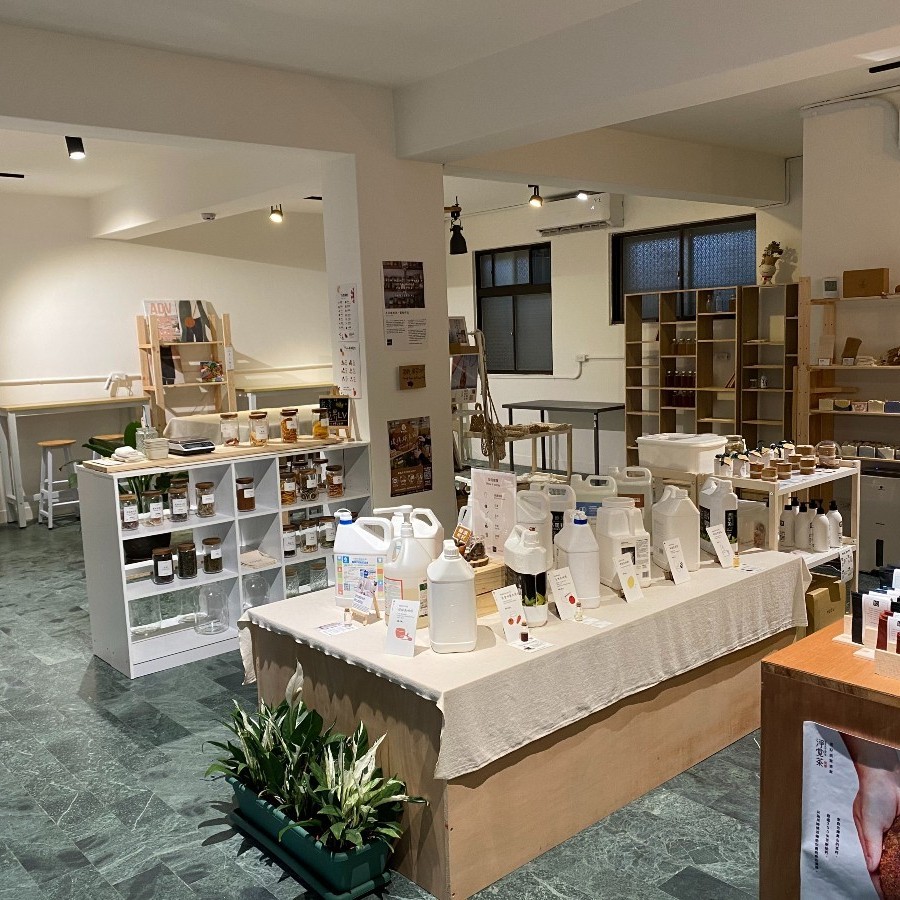
Taipei, Taiwan
Musu Zero Waste Store makes it easier for people in Taiwan to reduce their packaging waste and transition to an environmentally sustainable mindset and lifestyle. Their shop in Taipei offers a refill station, package-free bulk dried fruit and herbal teas, and zero waste personal care and household products. They also host lectures and events and share their venue with mission-aligned groups. Musu Zero Waste Store prioritizes products from local brands and not-for-profit organizations that serve people in need. They maintain a public map and list of bulk stores across Taiwan.
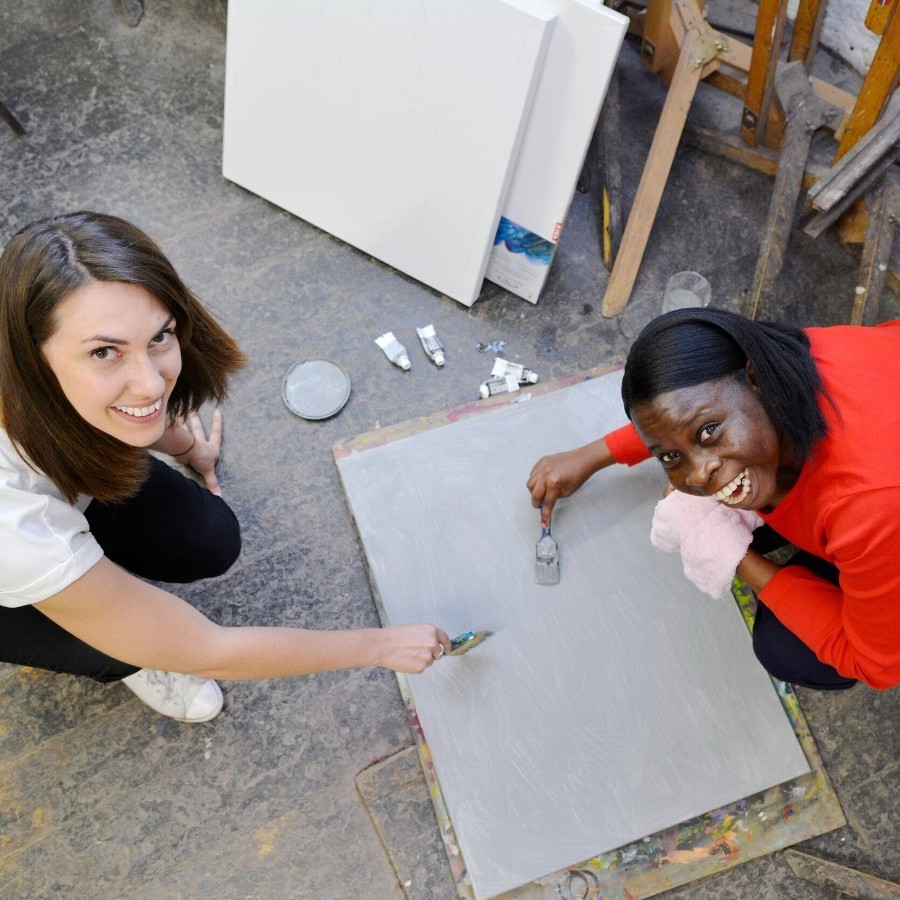
London, England, United Kingdom
Artbox London aims to to improve the wellbeing and inclusion of people with learning disabilities and autism, while increasing their visibility in the community and raising the profile of their artwork in the wider art world. They provide a safe and inclusive space where adults with learning disabilities and autism can explore and discover art, grow as artists and individuals, be accepted and appreciated, and make lasting connections. Artbox conducts studio workshops, offers outreach and one-to-one support, organizes trips to galleries and museums, hosts exhibitions, and creates sales opportunities for their artists. These activities improve mental health and social wellbeing by reducing isolation, loneliness, depression and anxiety and increasing confidence, self-esteem and self-pride. For the general public, Artbox offers evening art courses, volunteer placements, corporate workshops, and the opportunity to purchase unique original artwork, prints, cards, notebooks, calendars, and gifts. Artbox London is a registered charity.
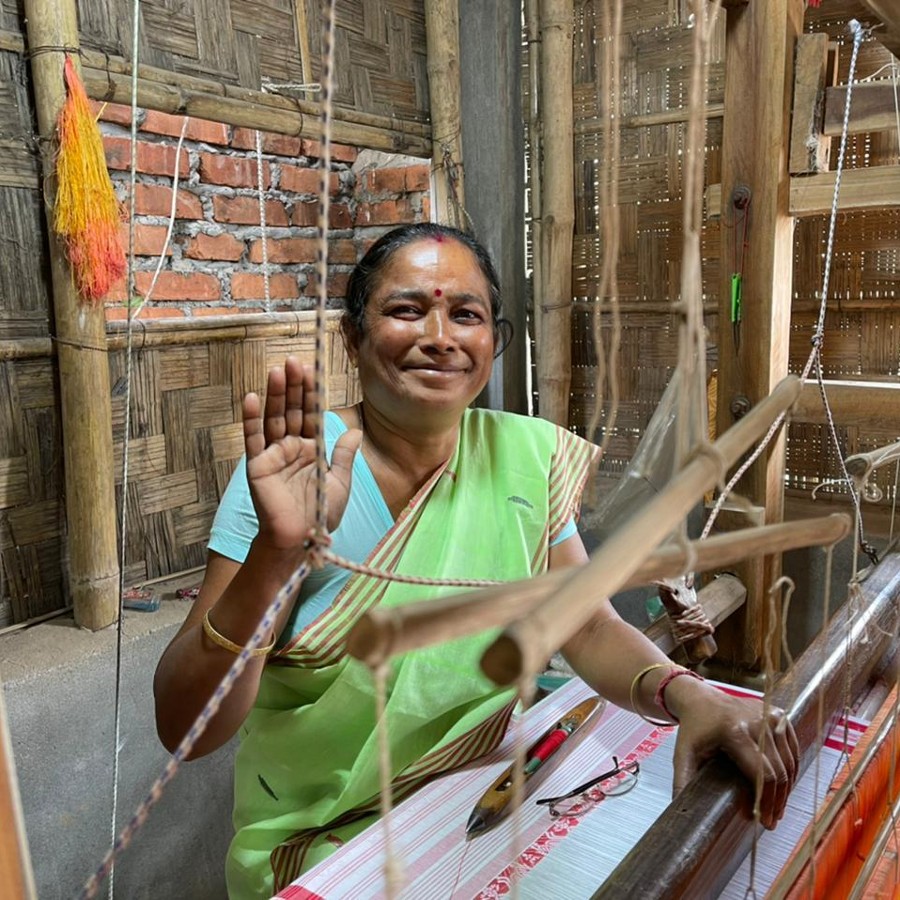
Guwahati, Assam, India
AVA Creations develops sericulture practices and handloom value chains as alternative livelihood opportunities for forest-dependent communities in Assam. They have helped more than 500 women earn sustainable incomes and reduce their dependence on forest reserves through Maa Xuta Prakalpa, their holistic approach to eri silkworm rearing and ahimsa silk yarn production. AVA Creations has established community weaving and handloom experience centers near Deepor Beel Wildlife Sanctuary. They sell handloom textiles, clothing, and accessories through their own local retail outlet and through national and international partners. Proceeds are used to conduct health camps, summer camps, and training programs for their artisans including sessions on domestic violence, sexual harassment, time and money management, and health and menstrual hygiene. AVACreations Social Impact Foundation is registered as a Section 8 not-for-profit company and is certified by Handloom Mark, Silk Mark, and India Handloom Brand.
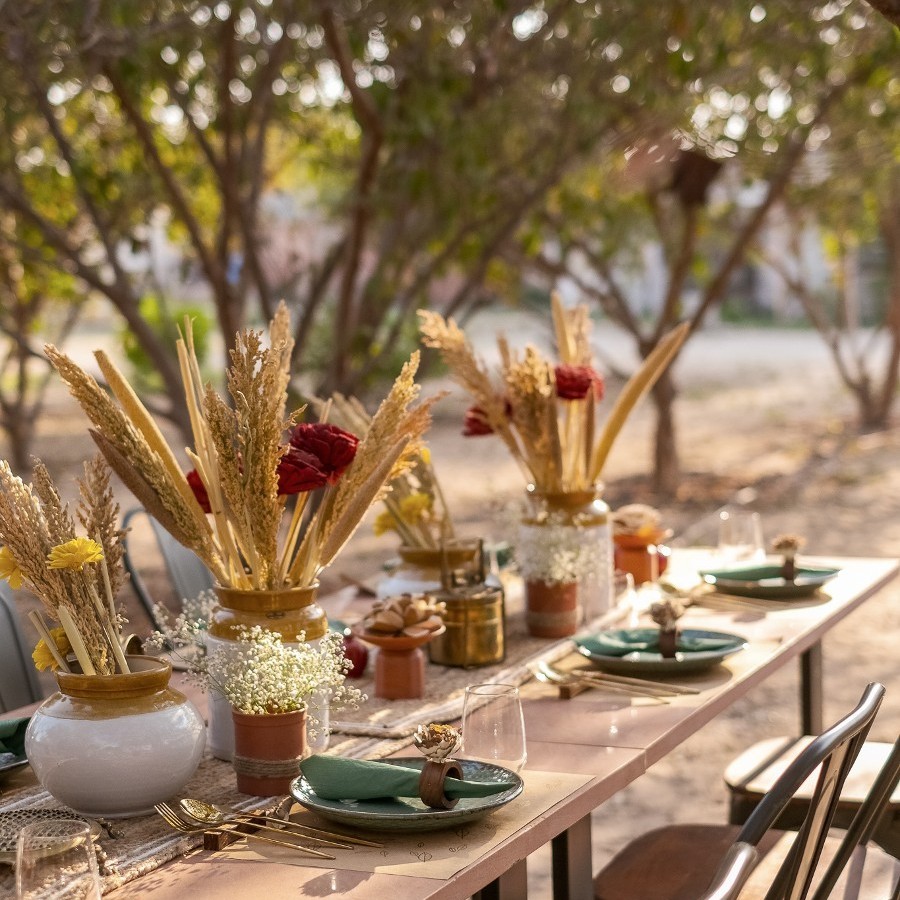
Jodhpur, Rajasthan, India
Mharo Khet is an experiential farm on the outskirts of Jodhpur that produces more than 100 plant varieties, provides guided tours, and offers plant-forward farm-to-table meals. They provide a working model for how once degenerated farmland can become a diverse, regenerative hub in the arid Thar Desert region. Mharo Khet’s mostly female farm team comes from the surrounding area and follows organic agriculture practices that combine modern and traditional techniques. They deliver same-day-harvested fresh herbs, fruits, and vegetables within Jodhpur and ship dried spices, herbs, pickles, preserves, legumes, grains, and flours throughout India. Mharo Khet provides educational support for staff members’ families.
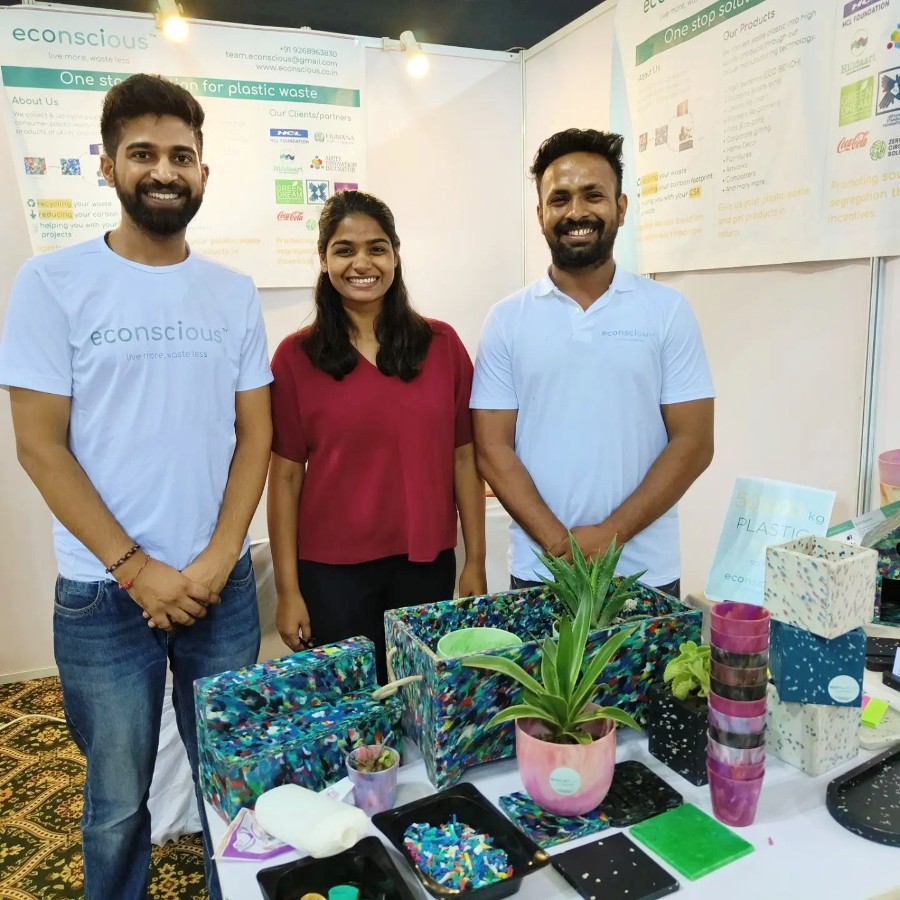
Delhi, India
Econscious reduces plastic pollution by transforming post-consumer plastic waste into functional, innovative products. They provide a door-to-door plastic waste pickup service in the Delhi area and offer a range of recycled plastic home and garden products including planters, pots, laptop stands, desk organizers, coasters, and bookshelves. They also create plastic paver blocks, tiles, sheets, and panels for landscaping and interior design products. Econscious has worked with institutional partners to produce customized gifts and recycled plastic benches and and waste bins for public spaces. They use their platform to raise awareness about waste reduction, conscious living, and transitioning to a circular economy.
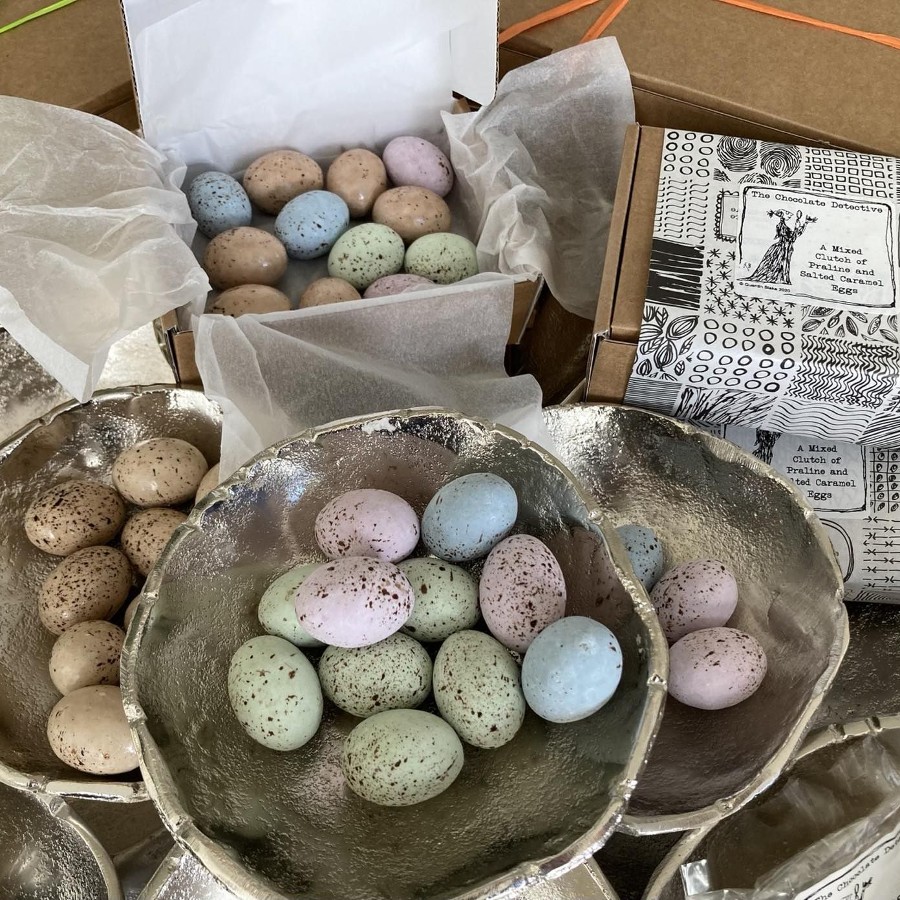
London, England, United Kingdom
The Chocolate Detective focuses on ethically and sustainably sourced chocolates that are transparent about origin and support the people at the start of the value chain. They work directly with cocoa farmers in Grenada and The Grenada Chocolate Company to supply a “tree to bar” chocolate that keeps value in the local economy. Their curated collection includes drinking chocolate from Madagascar, Vanuatu, and the Solomon Islands, single-origin Ecuadorian chocolate made with Arriba Nacional cacao beans, Provençal chocolate almonds, hazelnuts, and “olives,” and naturally colored bird egg chocolates. The Chocolate Detective uses glassine bags, compostable ribbons, paper tape, and other biodegradable or recyclable packaging materials. Products are certified organic by the Organic Food Federation.
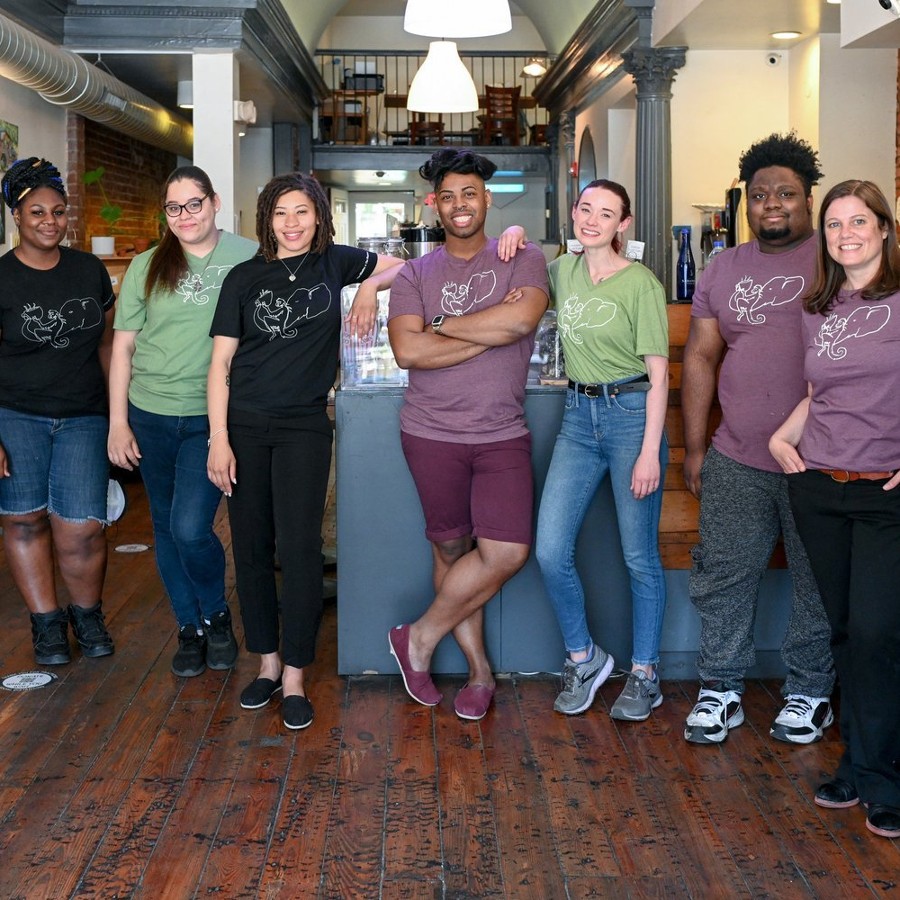
Philadelphia, Pennsylvania, United States
The Monkey & The Elephant is a not-for-profit coffee shop in the Brewerytown neighborhood of Philadelphia that employs and supports young people aging out of foster care. Their Employment Training Program (ETP) combines living wage employment, paid personal and professional skill development, and the supportive community needed to lead a sustainable, independent life. The majority of ETP participants are housing insecure and no or low income when they start the program. The Monkey & The Elephant provides individualized coaching and mentorship and ensures a stable transition to other job or educational opportunities at the end of the one-year program. The cafe serves ethically sourced, locally roasted coffee, composts the majority of its waste, and provides an accessible, inclusive, and safe community space. It serves as a hub for Philadelphia artists, makers, poets, and musicians. In addition to the cafe, The Monkey & The Elephant offers local catering and garden rental, sells coffee, tea, cocoa, baking mixes, and merchandise through their online store, and coordinates charitable donations. All proceeds are used to support former foster youth.
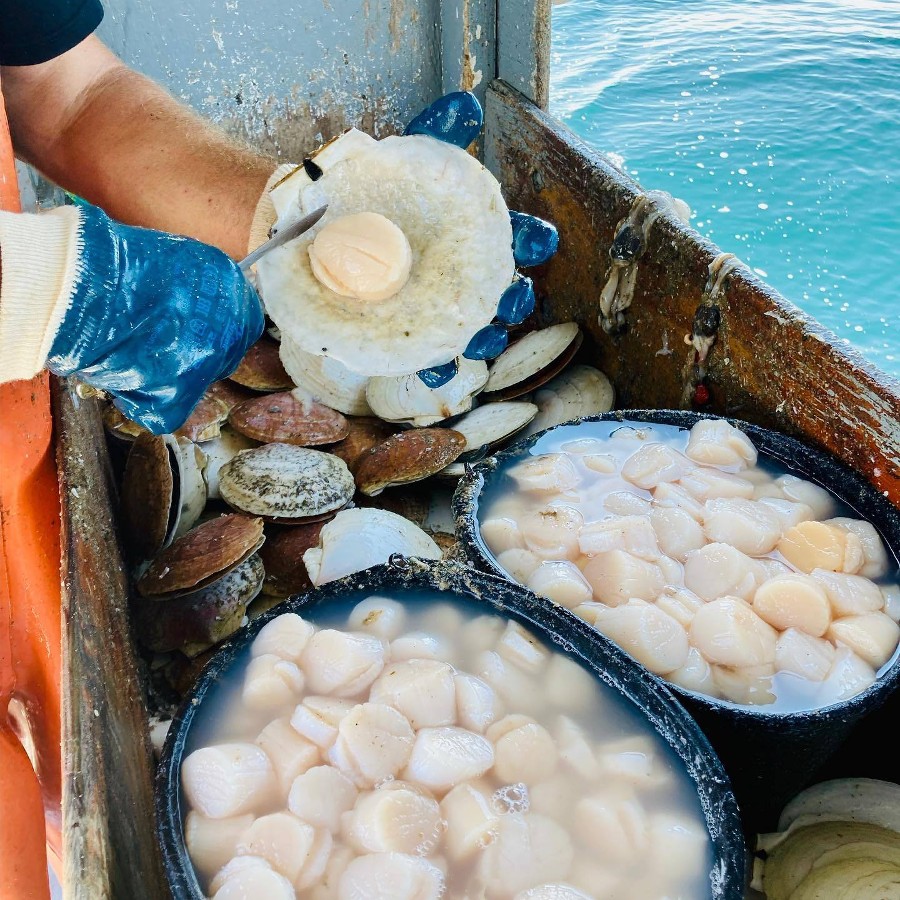
Wellfleet, Massachusetts, United States
F/V Isabel and Lilee is a family-owned day boat operating out of Cape Cod that specializes in wild caught fresh scallops. Their Atlantic sea scallop fishery is sustainably managed, responsibly harvested, and certified to Marine Stewardship Council standards. Boats use special gear to minimize bycatch, avoid protected areas, and harvest according to rotational access areas and a quota system. F/V Isabel and Lilee sells at local farmers’ markets, offers cooking classes and free seafood education classes, promotes eating locally caught seafood and less utilized fish such as monk and skate, and donates seafood to local organizations. The captain of the F/V Isabel and Lilee serves on the scallop advisory panel for the Northeast Fisheries Management Council (NEFMC) and advocates for small day boats and more sustainable fishing practices. He regularly takes marine science observers on board to collect scallop fishery data.
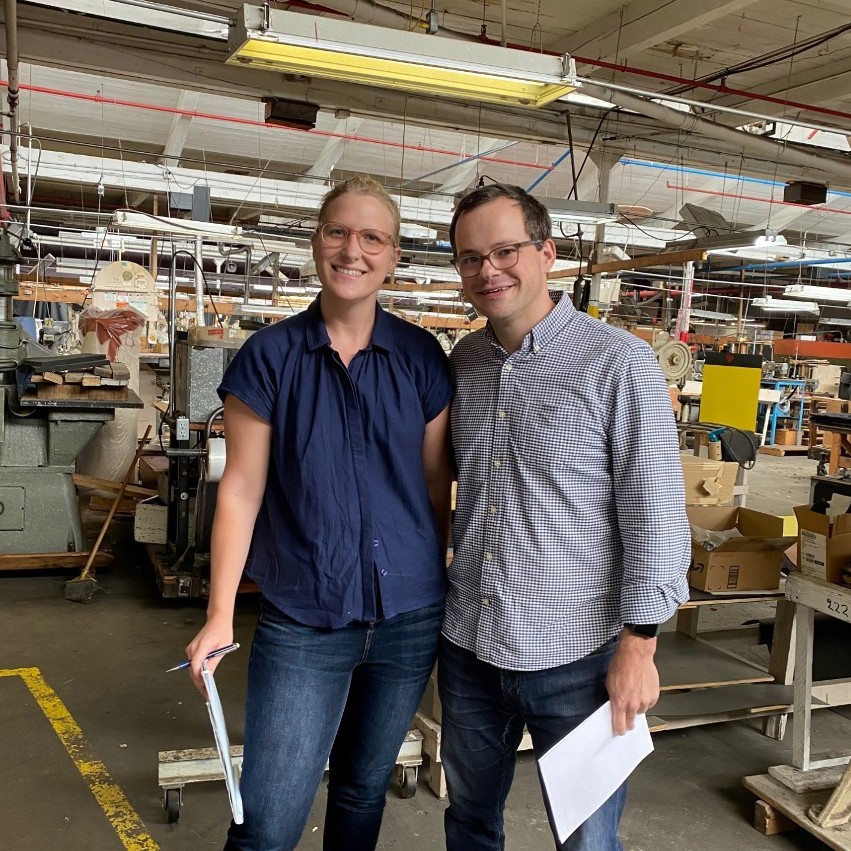
Park Ridge, Illinois, United States
Small Shop leverages their expertise in fair trade crafted goods and apparel to help designers and entrepreneurs bring new brands and product lines to market. They offer free consultations, personalized coaching sessions, and white label technical expertise with a focus on sourcing materials and products, patternmaking, technical documentation, product viability assessments, and strategic sustainability and supply chain recommendations. Small Shop can also serve as a virtual design and production team, providing the benefits of in-house experts without the overhead. They work with a network of producers and craftspeople in India and Nepal to provide full product life cycle management, from early-stage development to re-order. Small Shop facilitates the development of crafted goods and apparel through a commitment to collaboration, equity, sustainability, healthy business relationships, and long-term mutual growth.
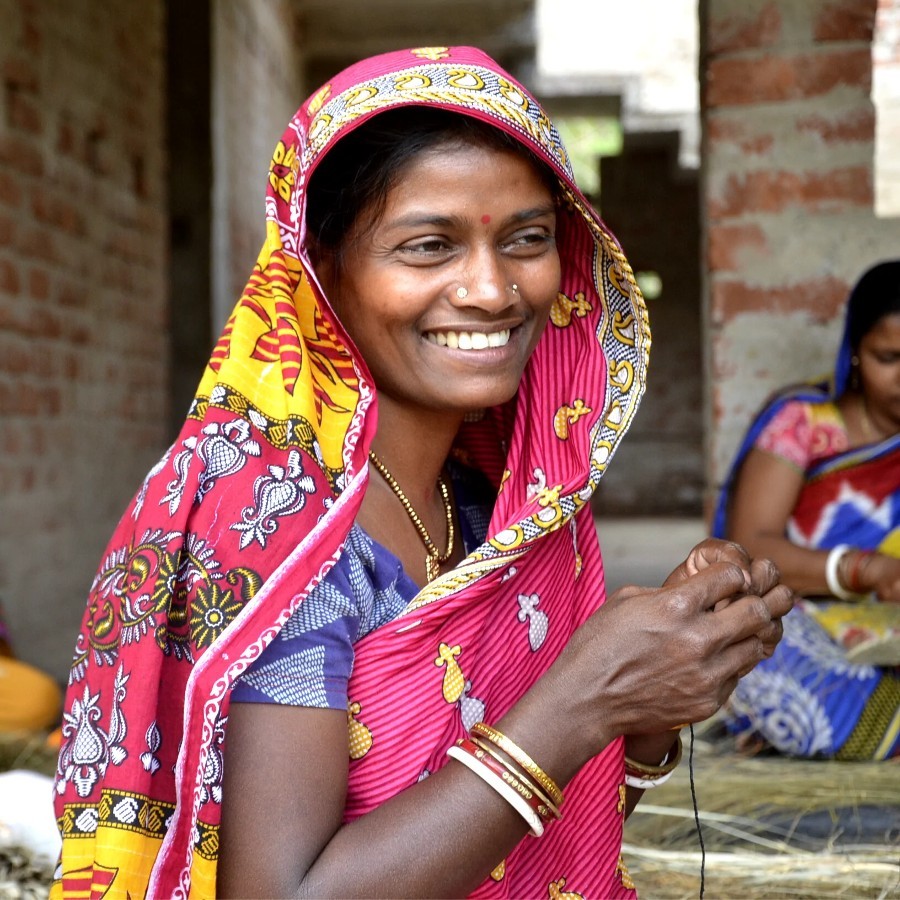
Khalor, West Bengal, India
KalaGhar works with women artisans in Mayurbhanj and Balasore, two districts in Odisha, to create sustainable housewares from locally sourced natural fibers. They aim to improve the social and economic standing of rural women artisans within their families and their communities. KalaGhar specializes in handwoven wall baskets, storage containers, planters, and table accessories made from sabai grass and date palm leaves. They assist with design training, skill development, raw material supply, and market access and provide transparent information on pricing and profitability. KalaGhar has been incubated and supported by IIM Ahmedabad, IIM Calcutta, and Villgro.
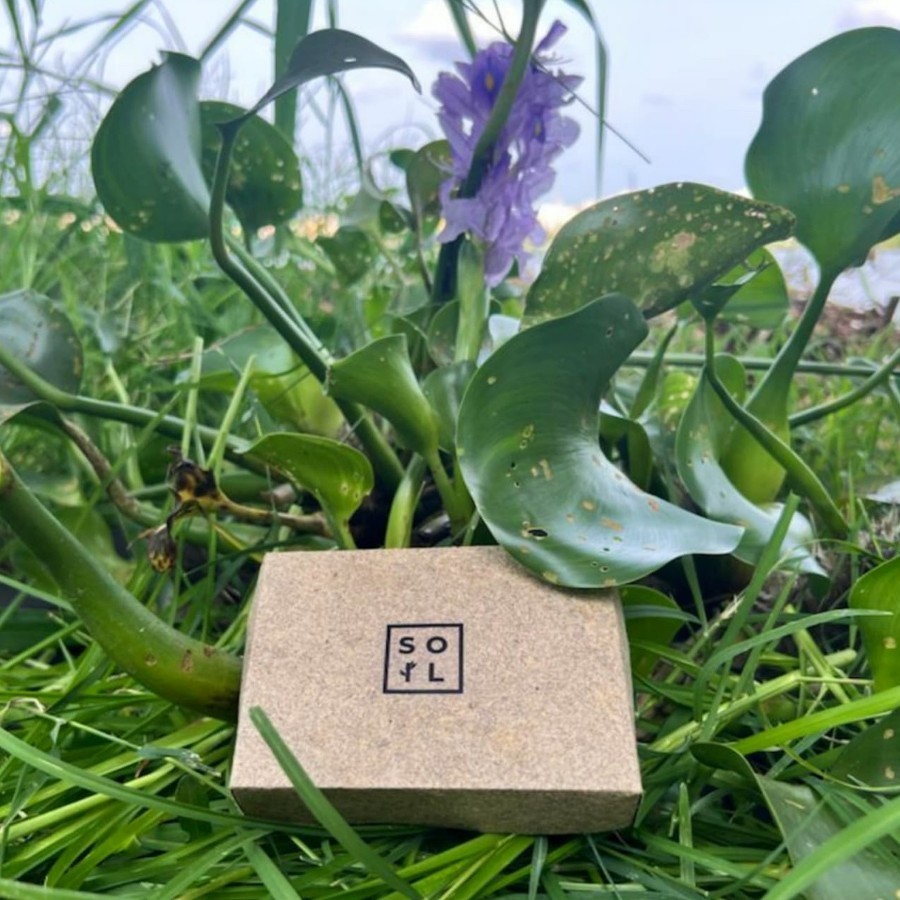
Bengaluru, Karnataka, India
Soilcane creates natural, tree-free paper products in order to reduce deforestation, soil pollution, air pollution, and water pollution. Their biodegradable packaging is made from invasive plants like water hyacinth and waste materials like sugarcane pulp. They offer printing and custom designs with a focus on product tags, packaging, ecommerce boxes, and shopping bags. Soilcane donates a portion of all sales to nonprofit organizations in their eco committee.
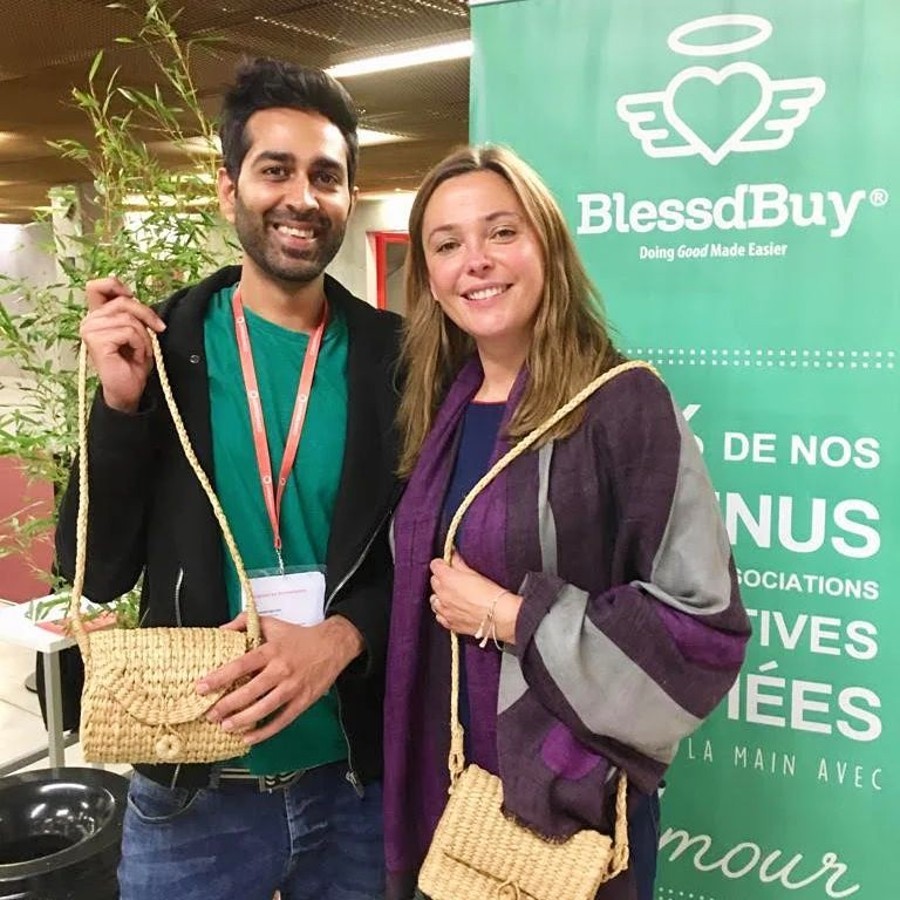
Bengaluru, Karnataka, India
BlessdBuy transforms “consumers into contributors” and makes it easier for buyers to engage with vulnerable makers and sustainable producers. They supply amenities, accessories, stationery, housewares, games, and toys directly to consumers through their online store, festivals, and events and to other businesses through wholesale and corporate gifting partnerships. BlessdBuy works with sustainable producers on brand development, product design, skills training, and market connections. They also coordinate immersive travel experiences and employee engagement programs. At least 70 percent of revenue goes to verified nonprofits and social enterprises with a focus on financial and material support, education, and disaster relief. BlessdBuy is part of Creative Dignity and Catalyst 2030.
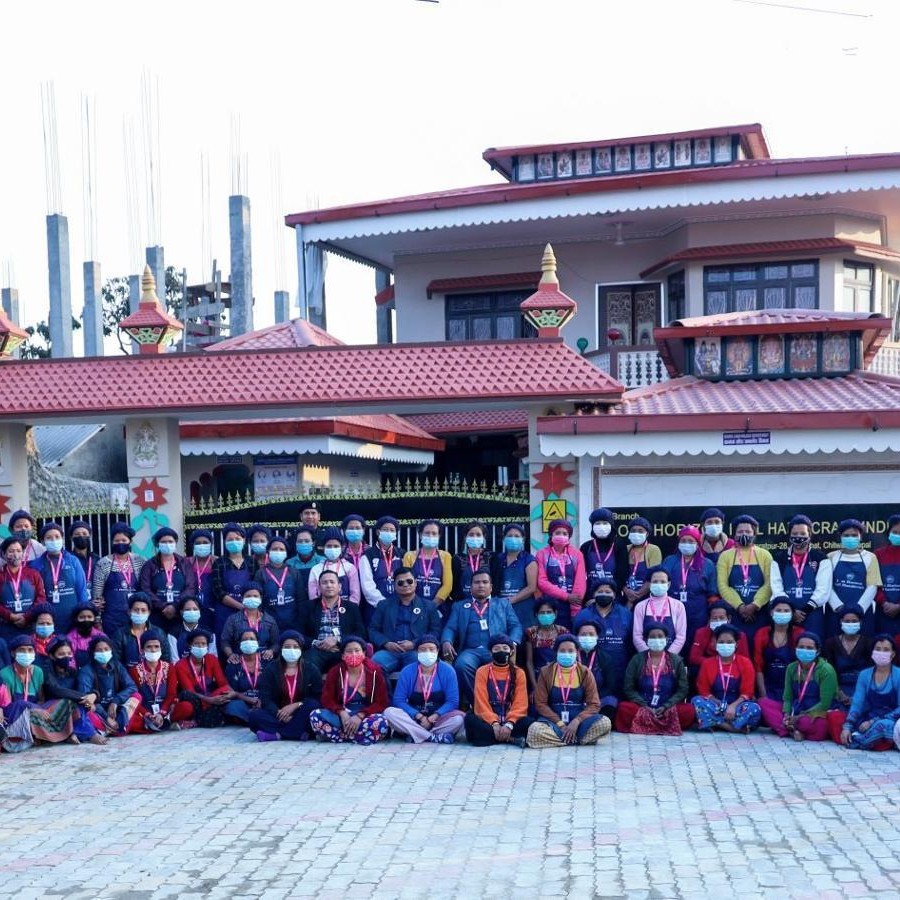
Chandragiri, Nepal
Lost Horizon Handicraft manufactures, wholesales, and exports handmade felted wool products from Nepal and provides training and employment opportunities for women from marginalized communities. They started in Thankot, Kathmandu in 2002 and expanded to Meghauli, Chitwan in 2012. The women use sustainably sourced New Zealand wool to produce felted slippers, dryer balls, pet toys, cat caves, ball rugs, Christmas ornaments, and other handcrafted products. Lost Horizon Handicraft supports local secondary education, healthcare, and rural infrastructure development.
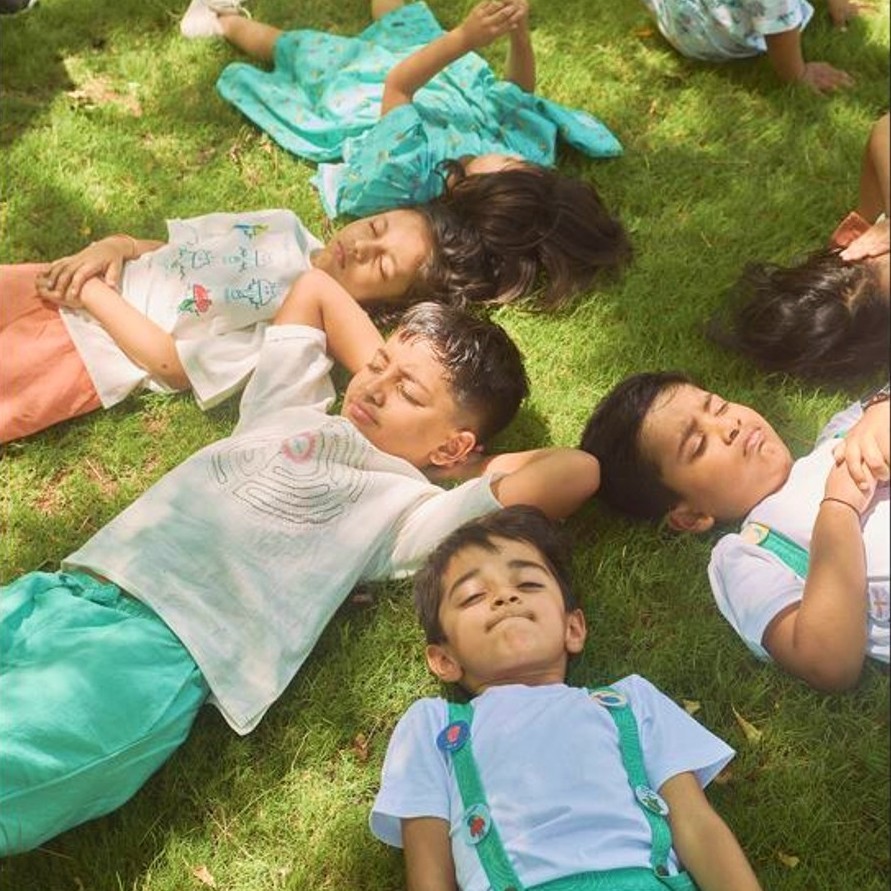
Ahmedabad, Gujarat, India
See Sow supports mental and emotional wellbeing and conscious living through mindful and interactive kids’ clothing. Product designs were created with expert guidance on color psychology and child development and include activities to help children talk about their emotions, practice positive affirmations, and develop mindfulness. See Sow is committed to fair wages, gender equity, and transparent supply chains and uses recycled and natural fabrics, low impact azo-free dyes, and compostable tags and packaging. They support Bhavyadev, a local nonprofit, and actively participate in road safety seminars, menstrual health workshops, and food, clothing, blanket, and sanitary pad donation drives. See Sow is part of the National Design Business Incubator (NDBI) at the National Institute of Design in Ahmedabad.
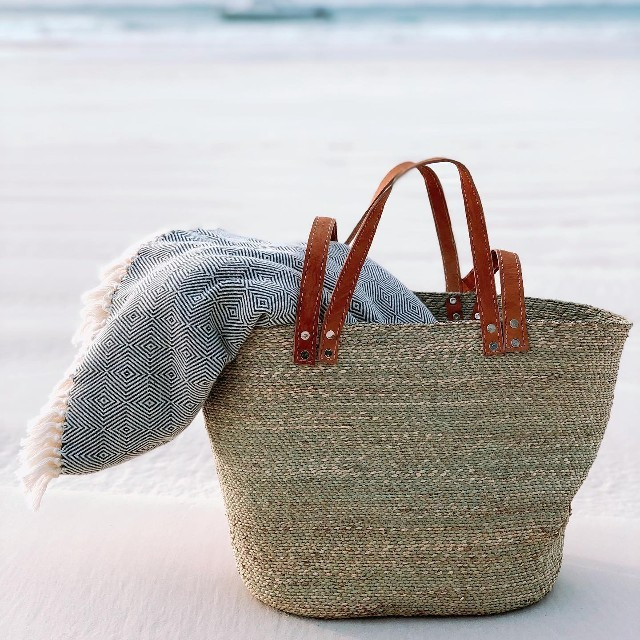
Arusha, Tanzania
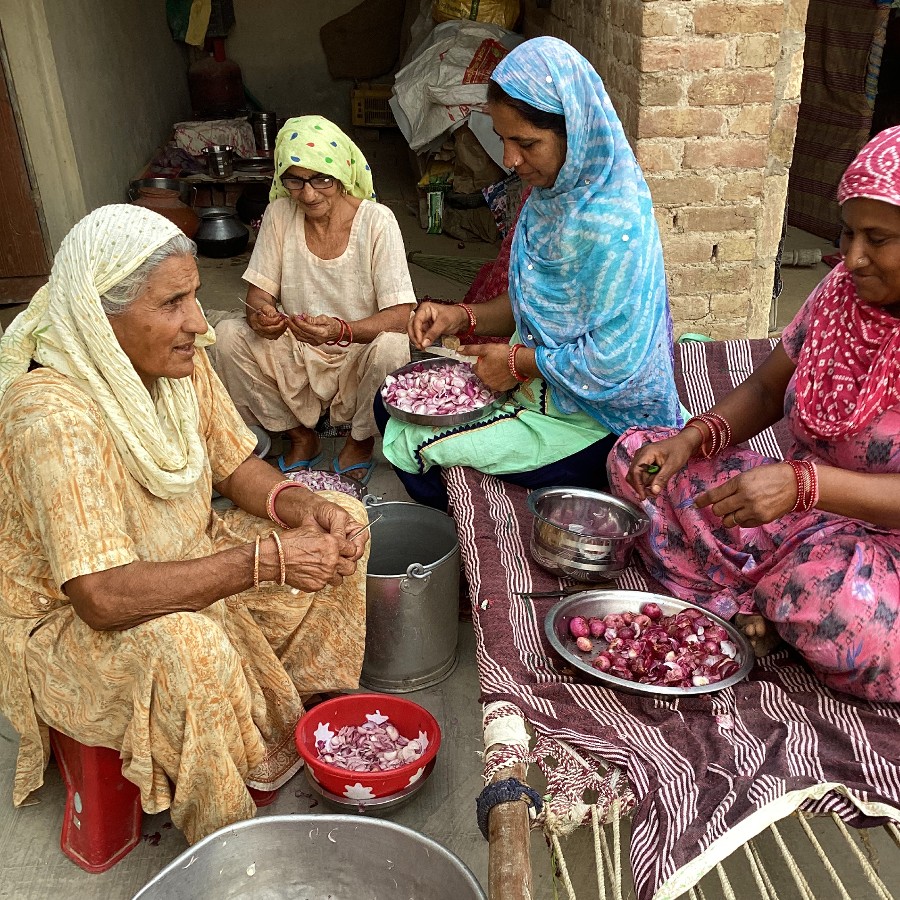
Bharu Wala Grant, Uttarakhand, India
The Green Kitchen was created to help a network of self-help groups in Uttarakhand directly access markets. The self-help groups manufacture onion powder, garlic powder, mustard oil and other natural food products, and The Green Kitchen provides a common brand and handles market research, pricing strategies, packaging, supply chain management, financial reporting, food quality and safety certifications, marketing, and customer relations. Pricing is kept affordable for the general public. The Green Kitchen is incubated by the Policy Innovation Lab. They are coordinating a Green City Initiative to plant thousands of trees in Dehradun, Rudrapur, Kotdwar and Haridwar.
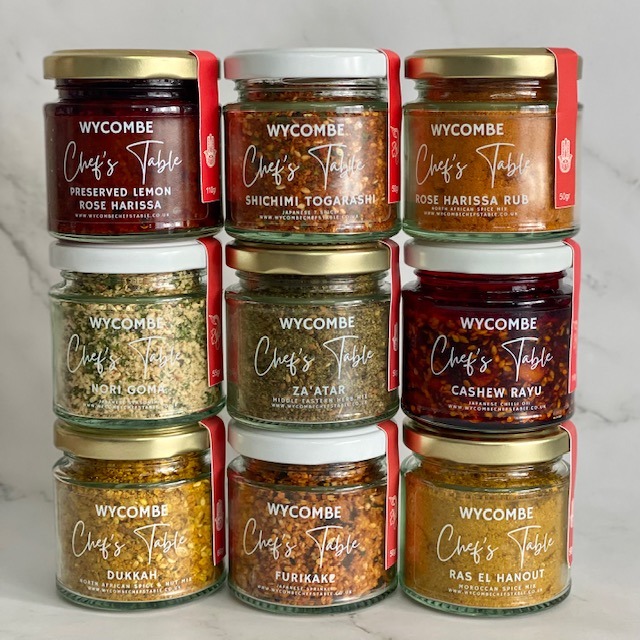
High Wycombe, England, United Kingdom
Wycombe Chef’s Table produces handcrafted natural spices, spice blends, rubs, chili oils, and pastes in Buckinghamshire and makes it easy for home cooks to explore new flavors. They participate in local events, donate to local fundraisers, and source from local producers like The Cornish Seaweed Company and Nurtured in Norfolk. Wycombe Chef’s Table is committed to environmental responsibility. Their boxes, packing materials, and kraft tape are recyclable and compostable, glass jars are reusable, and clear bags are made from compostable cellulose. They donate 20 percent of profits to Trailblazers, a national charity that mentors young offenders in prison and after release to reduce recidivism.
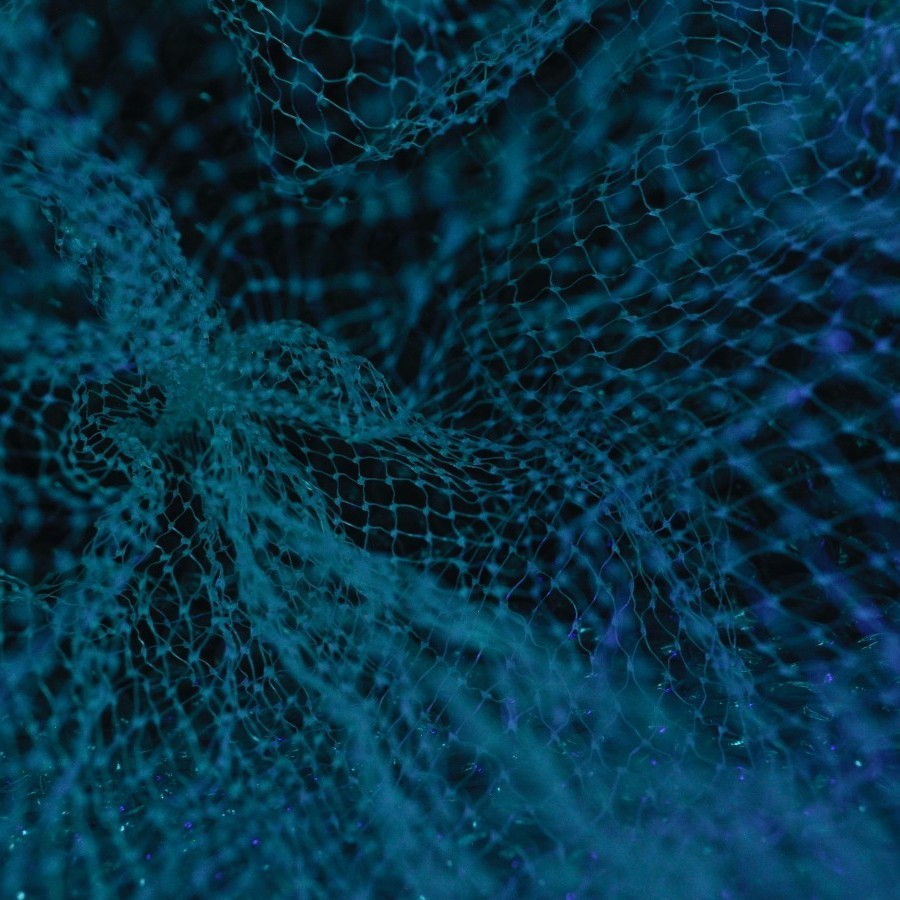
Sevalink provides financial services and advisory services for a new economy. They specialize in management accounting support for open book systems and impact-oriented decision making. They also offer fiscal sponsorship and payment transfers to mission-locked social enterprises that do not have access to nonprofit status or international payment gateways. Sevalink is registered as a 501(c)3 not-for-profit organization.
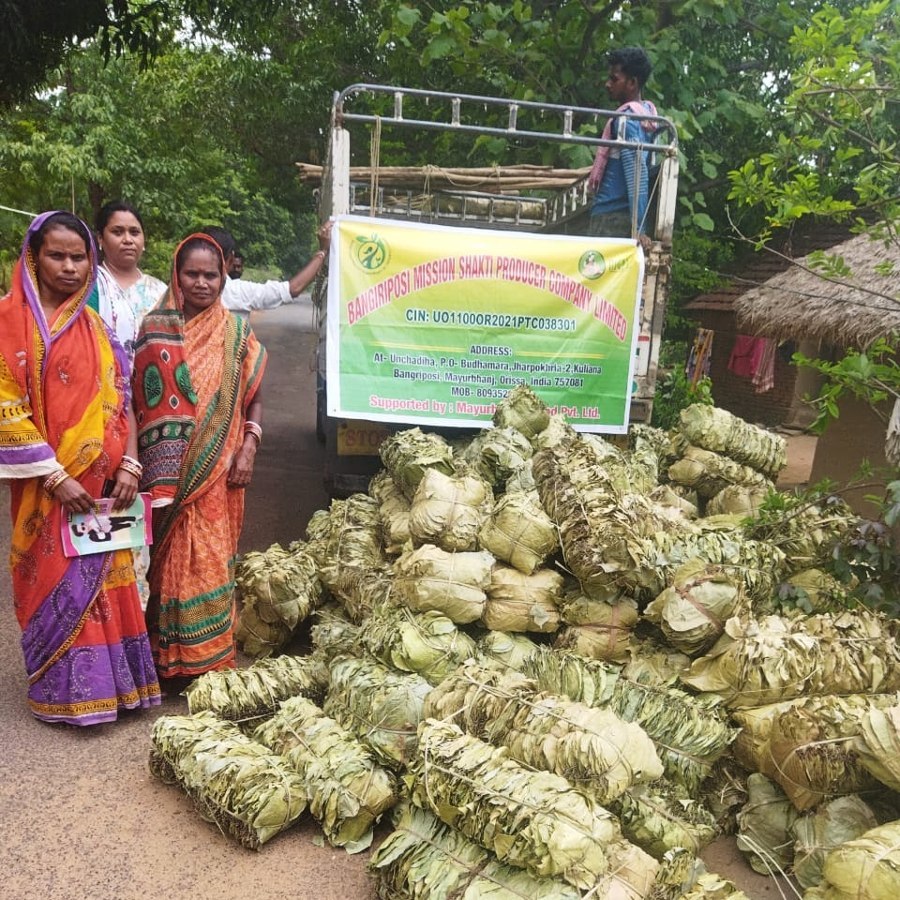
Bhubaneswar, Odisha, India
Mayurbhanj Grand works with tribal producer groups in the Mayurbhanj district of Odisha to develop and market indigenous non-timber forest products like handwoven housewares and sal leaf utensils. The focus is on developing an economic model that can be replicated across tribal communities and can support self-sufficiency and sustainable development in what is considered one of the most “backward” areas of India. Tribal women have created their own producer companies and Mayurbhanj Grand assists with raw materials, skill development, mentoring, training, product design, packaging, branding, quality checks, and market access. They provide upfront fair trade payments and annual profit sharing incentives.
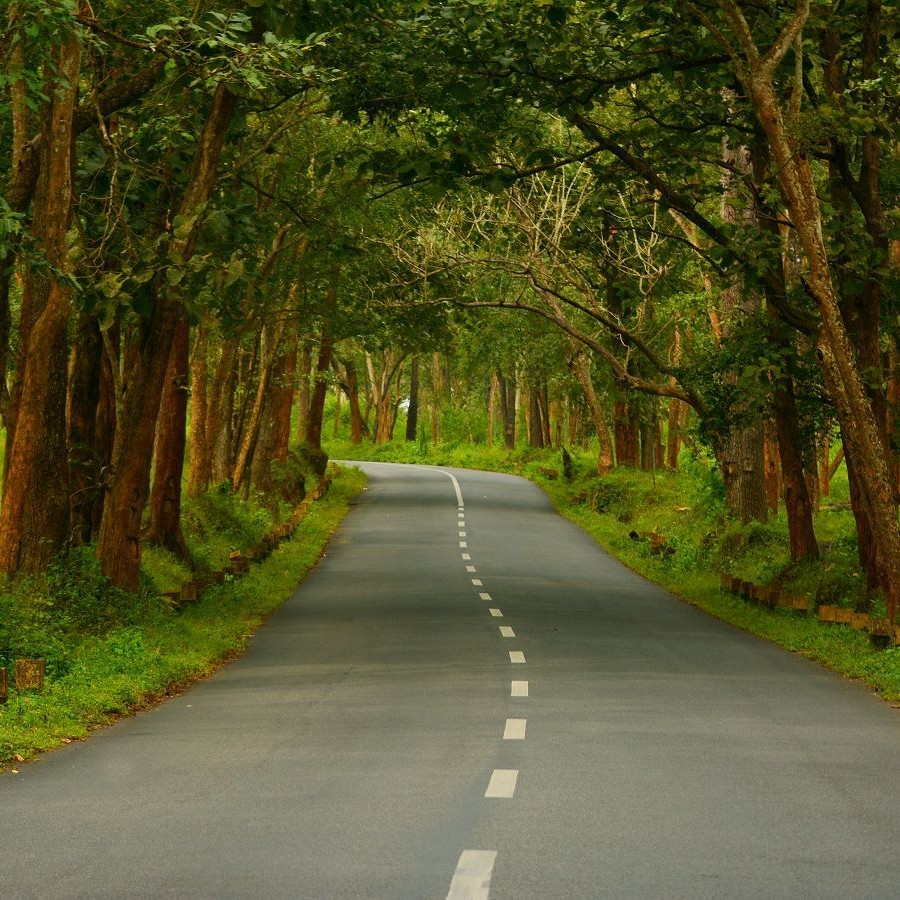
Pune, Maharashtra, India
The middle Road is an online learning platform that brings together media and education technology to enable social change and impact. It includes publications, articles, podcasts, webinars, videos, a community forum, and comprehensive online courses on economics, finance, sustainable development, impact evaluation, and other related topics. They also offer consulting, advisory, training, and research services. The middle Road is designed for inclusion and provides content for free or at affordable, discounted rates for lower income levels. They have pledged to donate a portion of all profits to charitable causes.
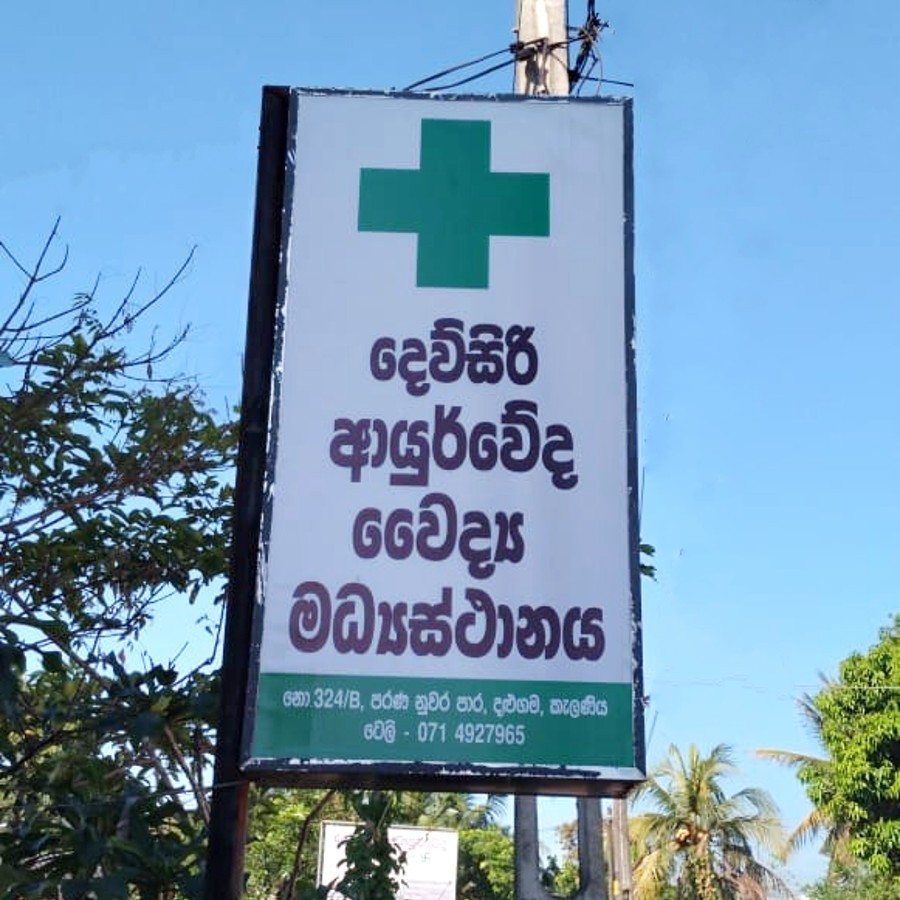
Kelaniya, Sri Lanka
Dewsiri Ayurveda offers ayurvedic products and treatments from their medical center in Kelaniya. Products are made from natural, herbal ingredients that are sustainably sourced from local suppliers. They provide free medicine and treatment for clergy and people in need.
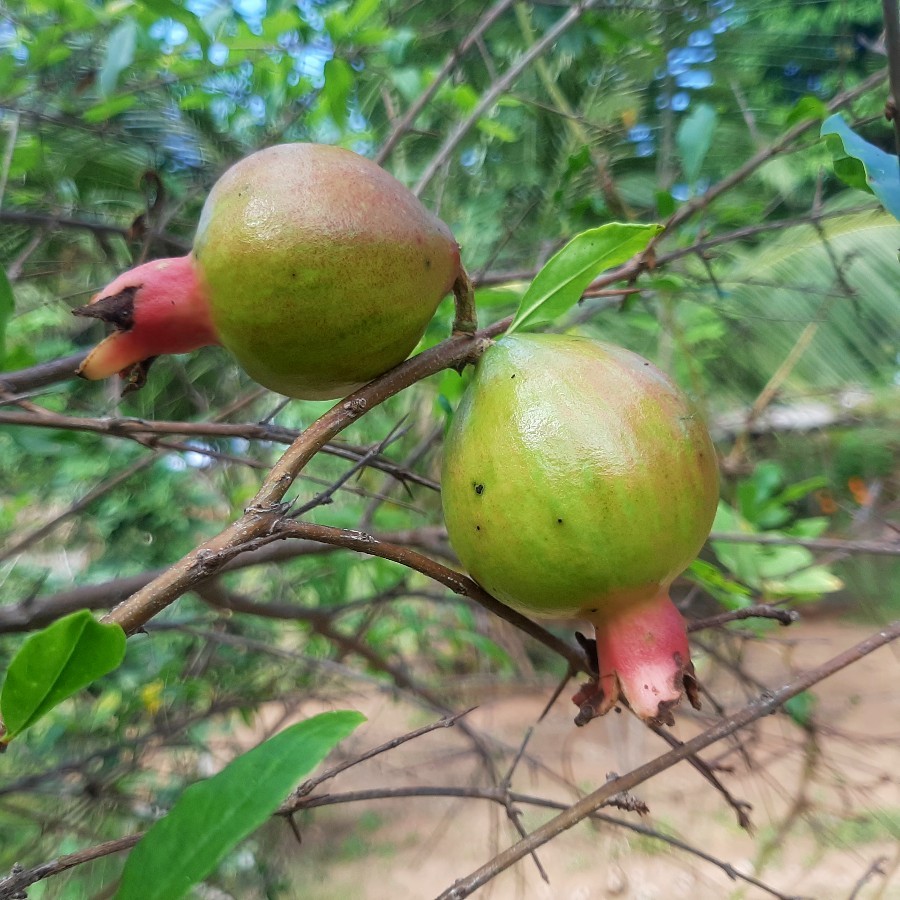
Pulmoddai, Sri Lanka
Ponmalaikuda Organic Farmers is a cluster of small-scale organic farmers in eastern Sri Lanka committed to growing affordable natural food. They produce their own compost and liquid fertilizers from locally available materials and maintain live fences and buffers. Crops include dry zone vegetables, leafy greens, and legumes. Members also grow ginger, turmeric, banana, papaya, lime, pomegranate, ambarella, guava, mango, jackfruit, moringa, cashew, king coconut, and coconut. Ponmalaikuda Organic Farmers is verified under a local organic participatory guarantee system (PGS).
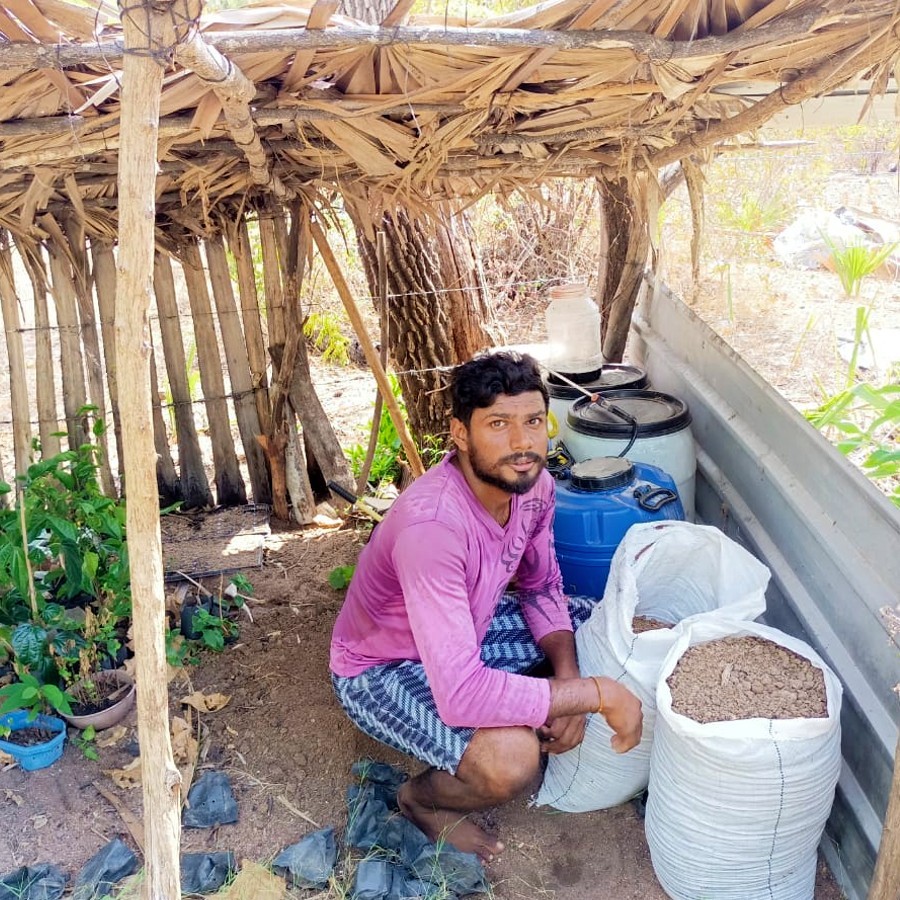
Pulmoddai, Sri Lanka
Vithu Organic Farm grows dry zone vegetables, turmeric, sugarcane, and moringa in northeastern Sri Lanka. They use biochar to improve the soil and produce natural fertilizers and pest repellents from locally available materials. Vithu Organic Farm is verified under a local organic participatory guarantee system (PGS).
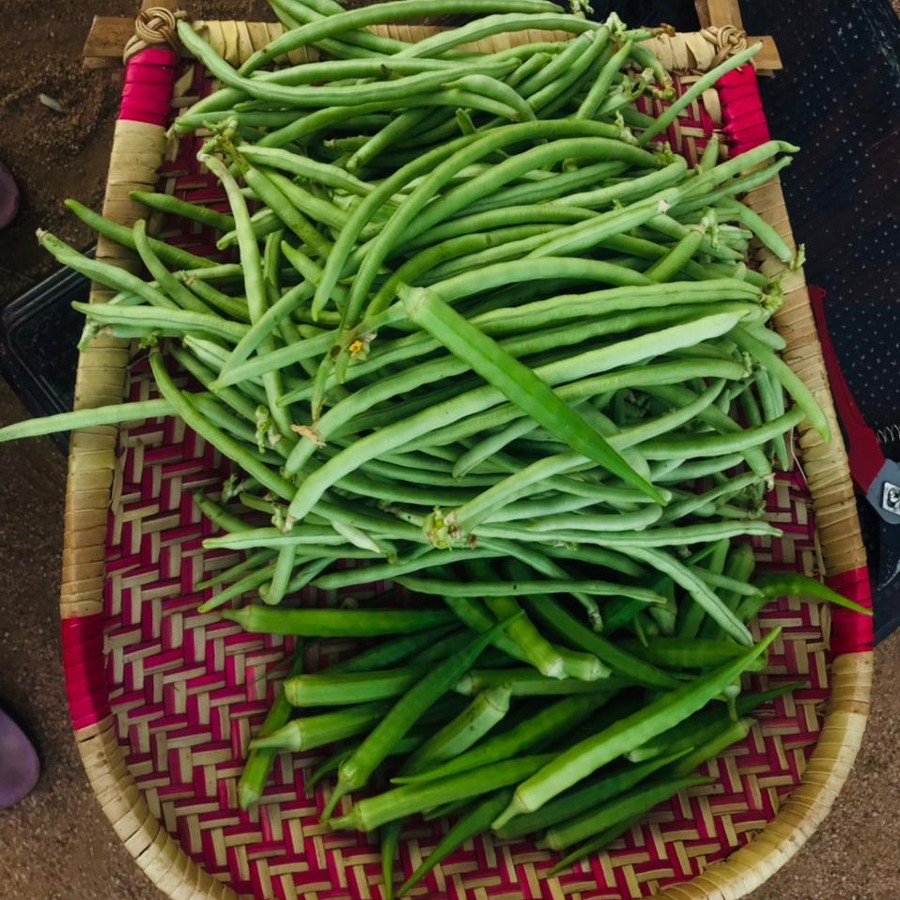
Pulmoddai, Sri Lanka
Shan Organic Farm cultivates dry zone vegetables, spices, herbs, and fruits in northeastern Sri Lanka. They practice mulching and mixed cropping and produce their own compost and organic inputs from locally available materials. Shan Organic Farm is verified under a local organic participatory guarantee system (PGS).
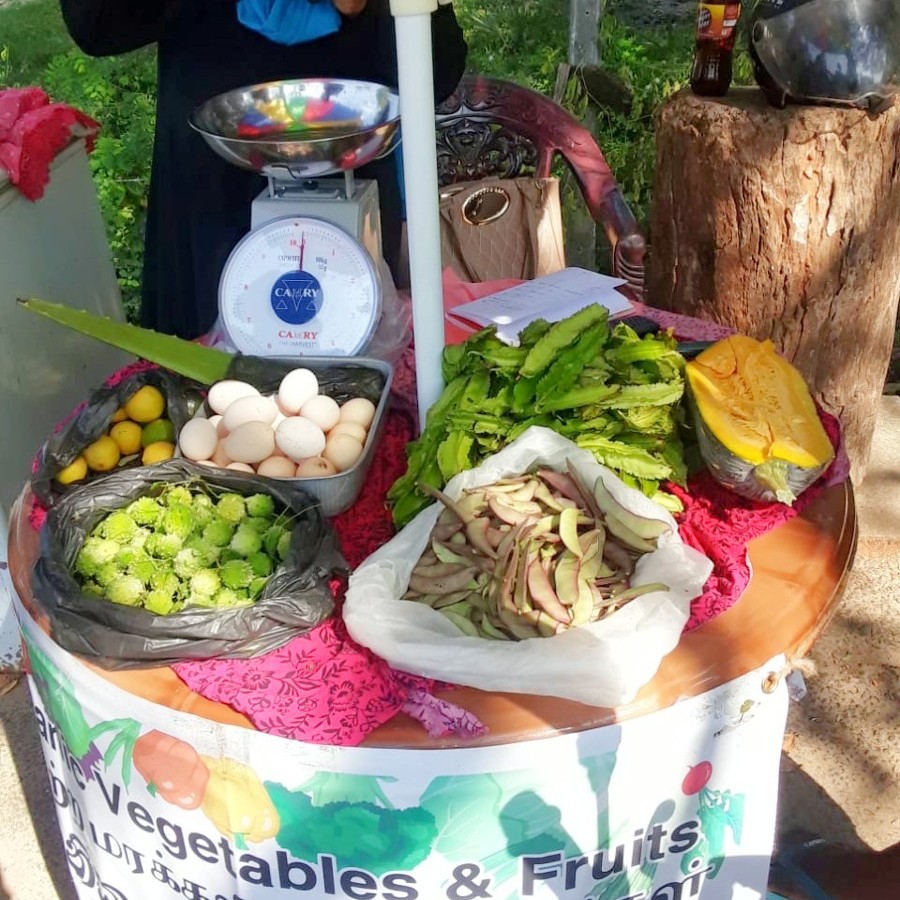
Pulmoddai, Sri Lanka
Vijaya Organic Farm cultivates organic fruits and vegetables in northeastern Sri Lanka. Crops include dry zone vegetables, ginger, turmeric, cassava, sugar cane, passion fruit, papaya, mango, coconut, moringa, and areca. They produce liquid fertilizers and pest repellents from locally available materials and save their own seeds. Vijaya Organic Farm is verified under a local organic participatory guarantee system (PGS).
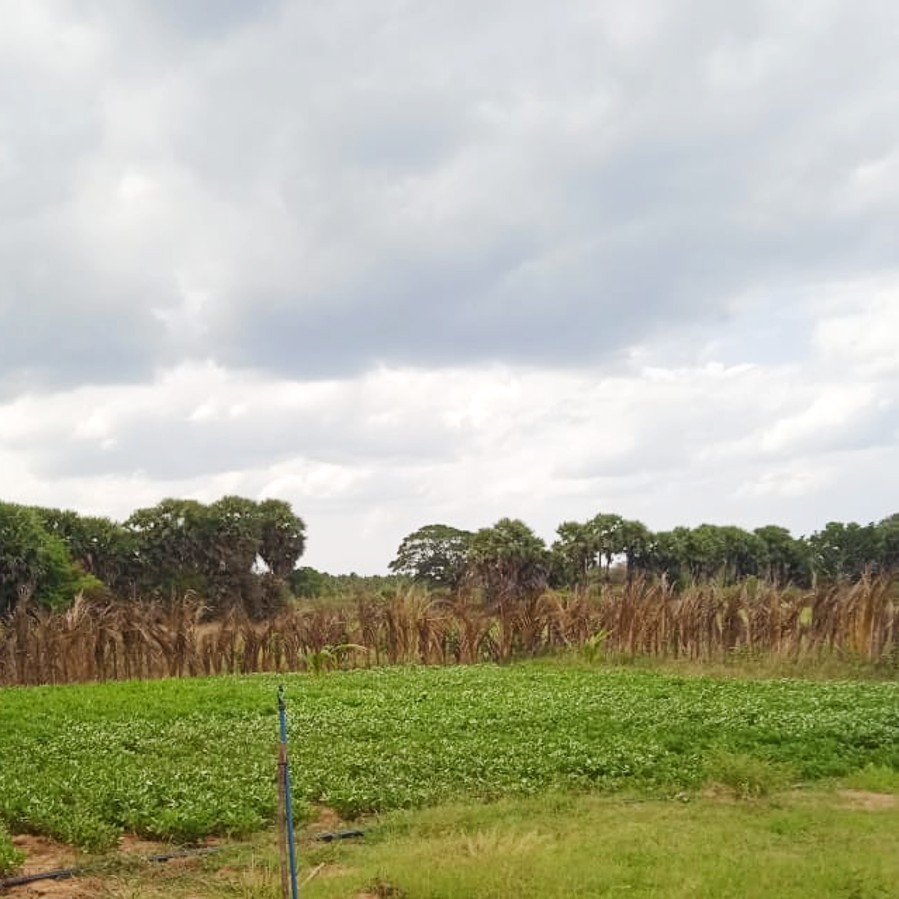
Pulmoddai, Sri Lanka
Siyaorganic grows dry zone vegetables, ginger, turmeric, passion fruit, banana, lime, orange, guava, soursop, mango, cashew, moringa, and coconut on a small-scale farm in northeastern Sri Lanka. They save their own seeds and produce their own compost and organic inputs from locally available materials. Siyaorganic is verified under a local organic participatory guarantee system (PGS).
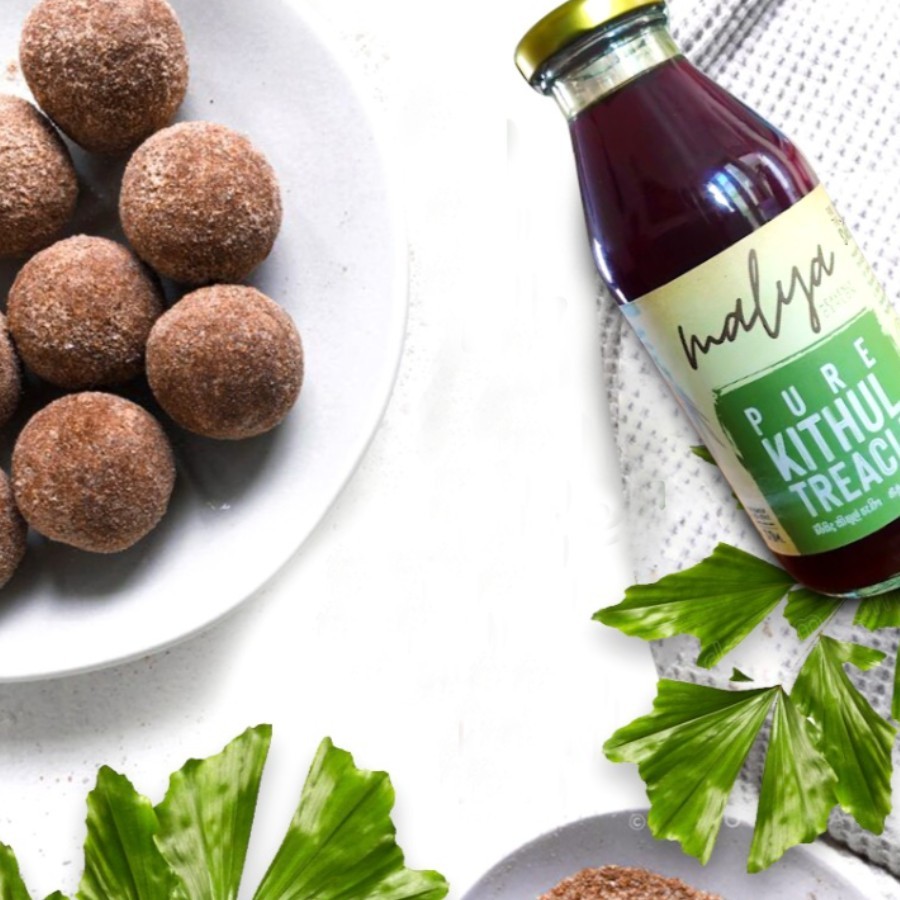
Udugama, Sri Lanka
Malya sources kithul sap from kithul palm tappers in the Udugama area and produces pure kithul syrup as a local, healthier alternative to refined white sugar. They create rural livelihood opportunities, provide training and safety equipment, and pay fair trade rates. Malya is committed to sustainable harvesting practices and biodiversity conservation.
Know an initiative that’s good for people and good for the planet? The application is currently available in English, Sinhala, Tamil, Urdu, Spanish, and Japanese and started in Nepali: www.goodmarket.global/apply Want to help make it available in another language? Learn more about the community translation project here.